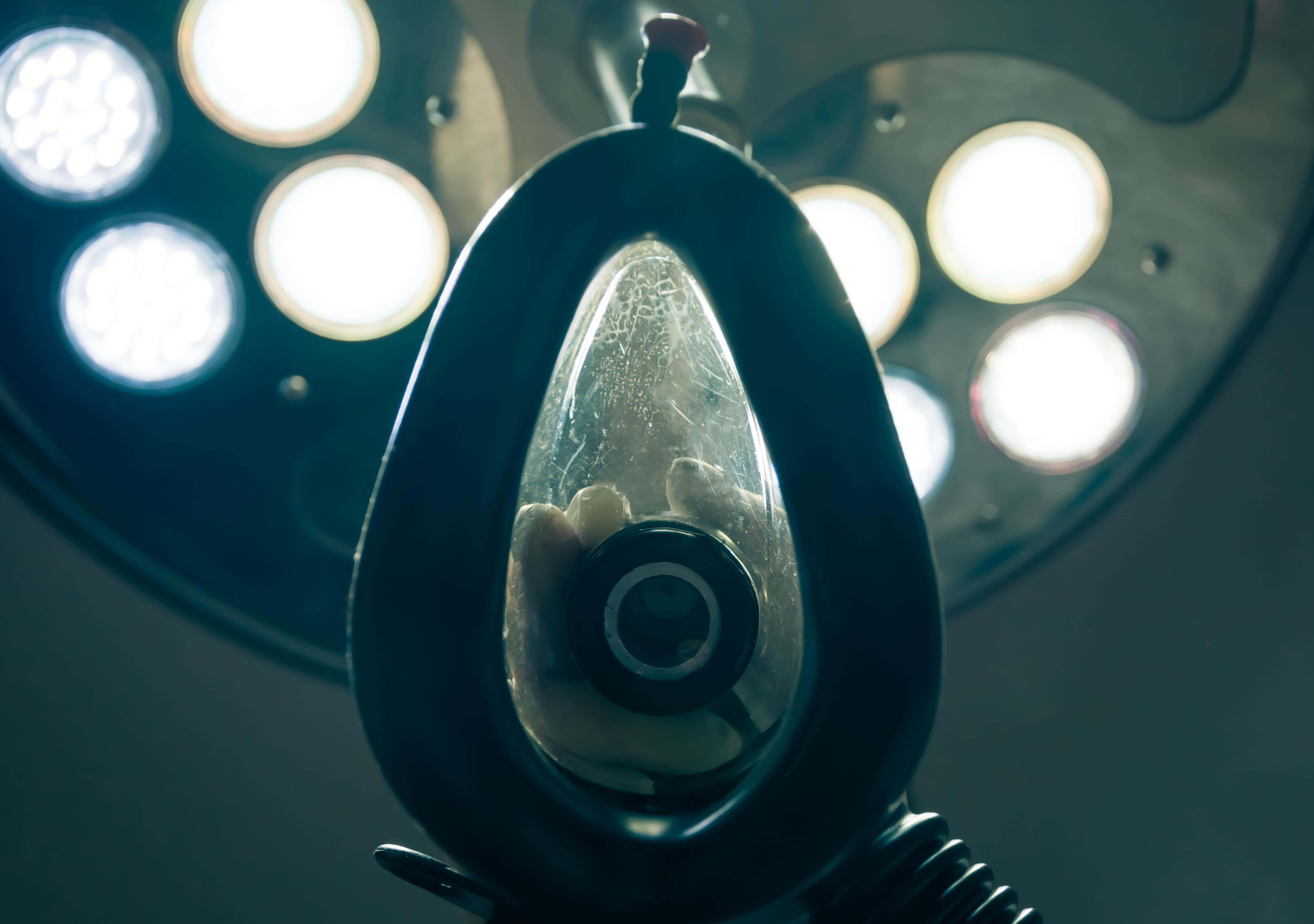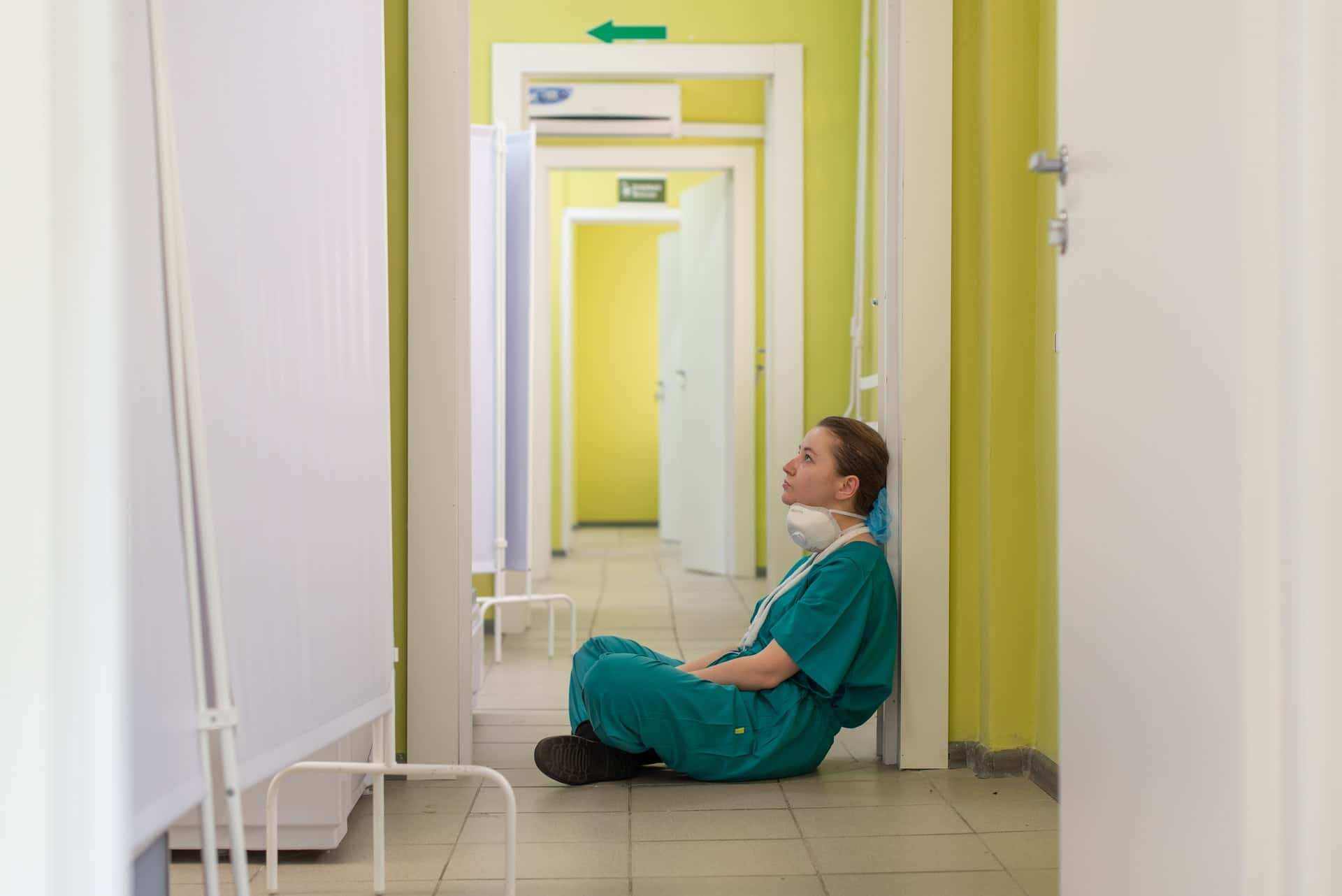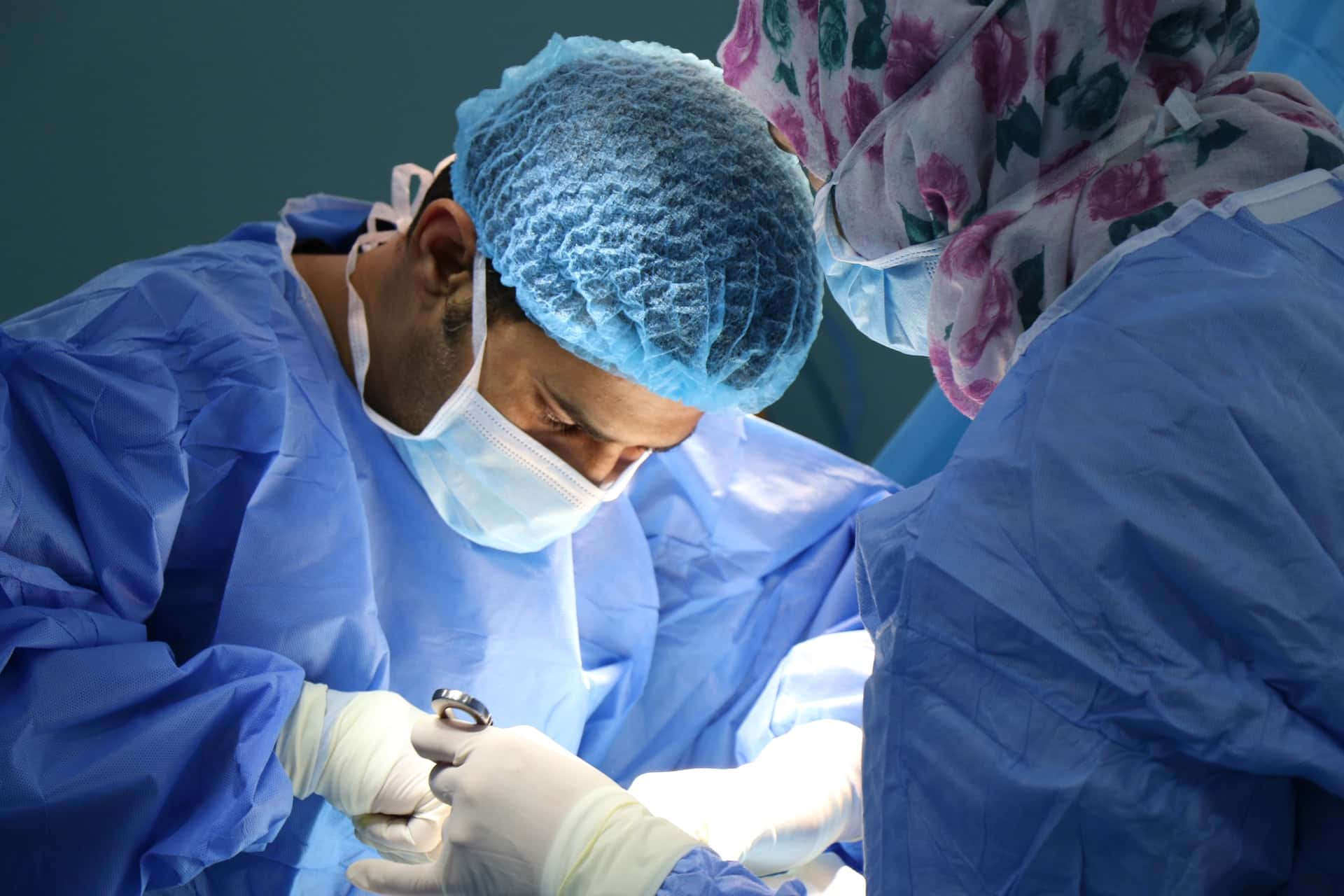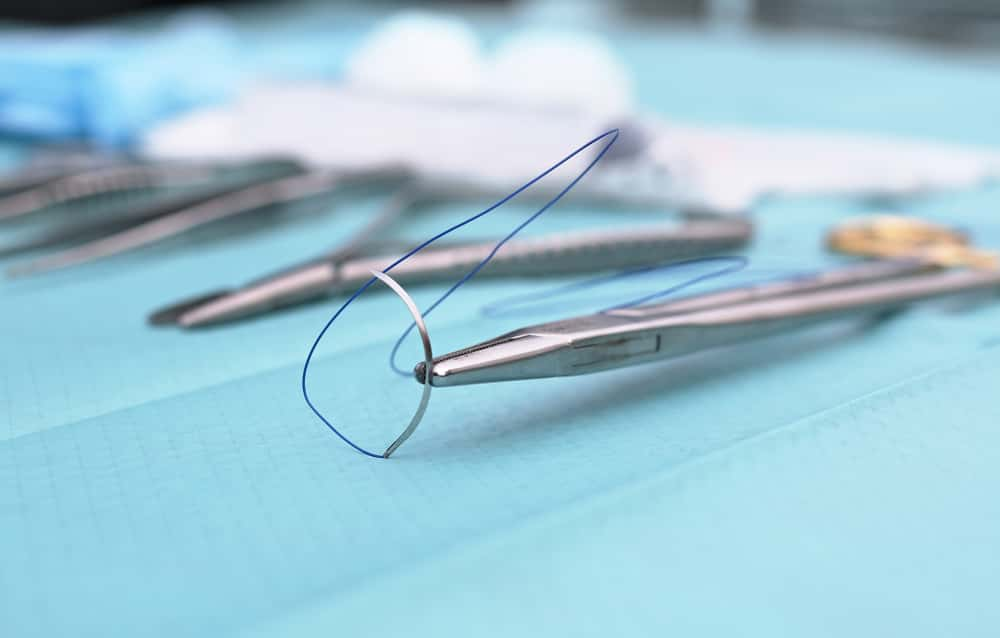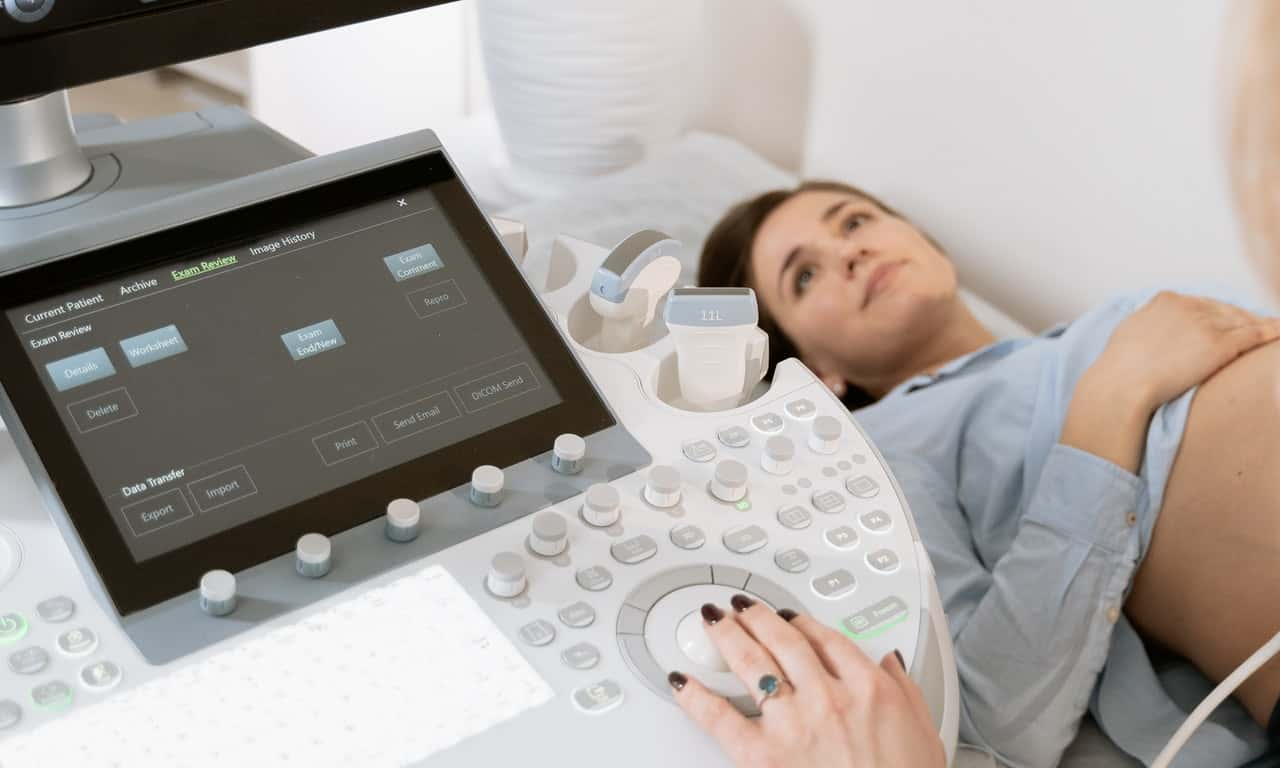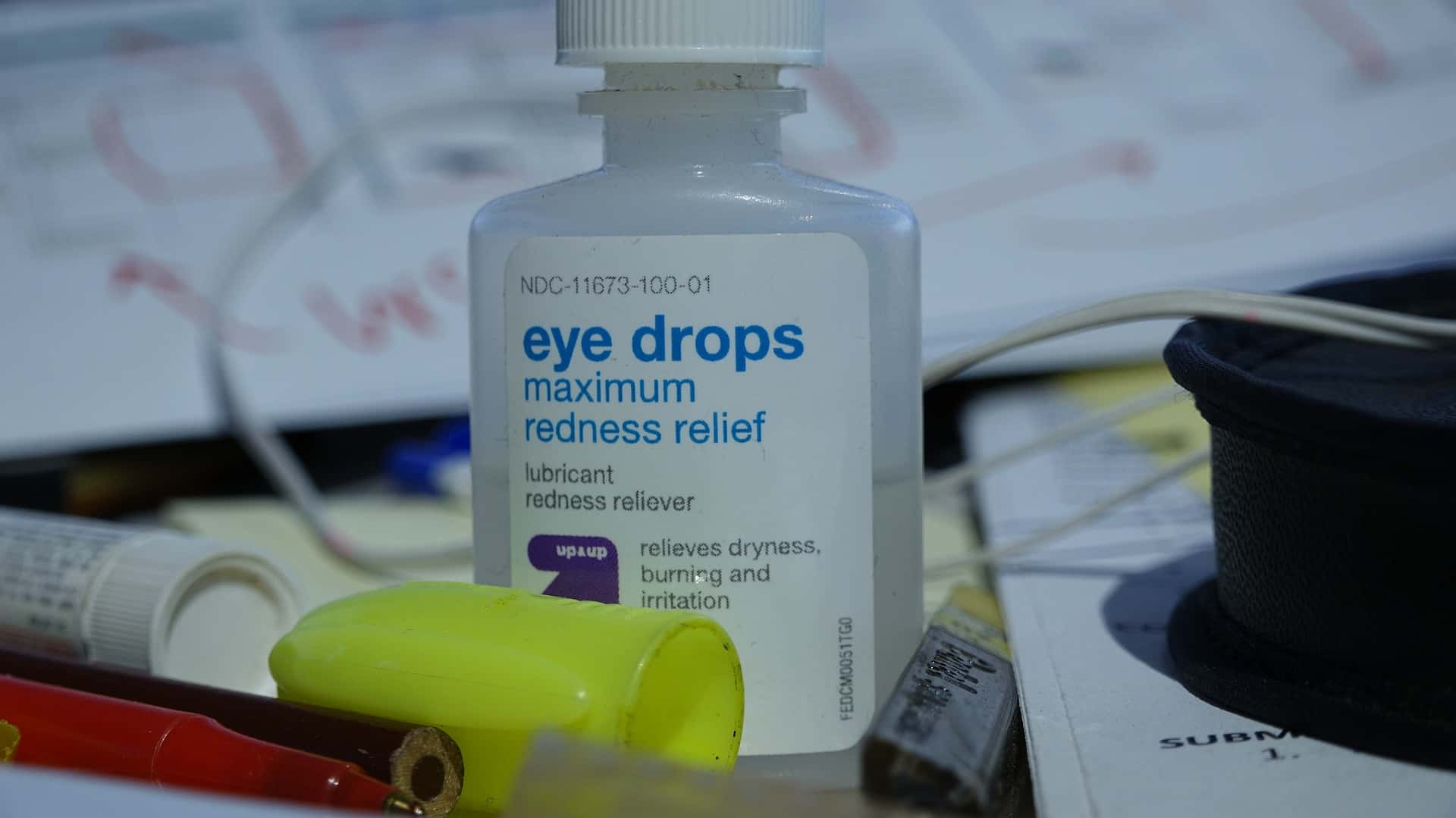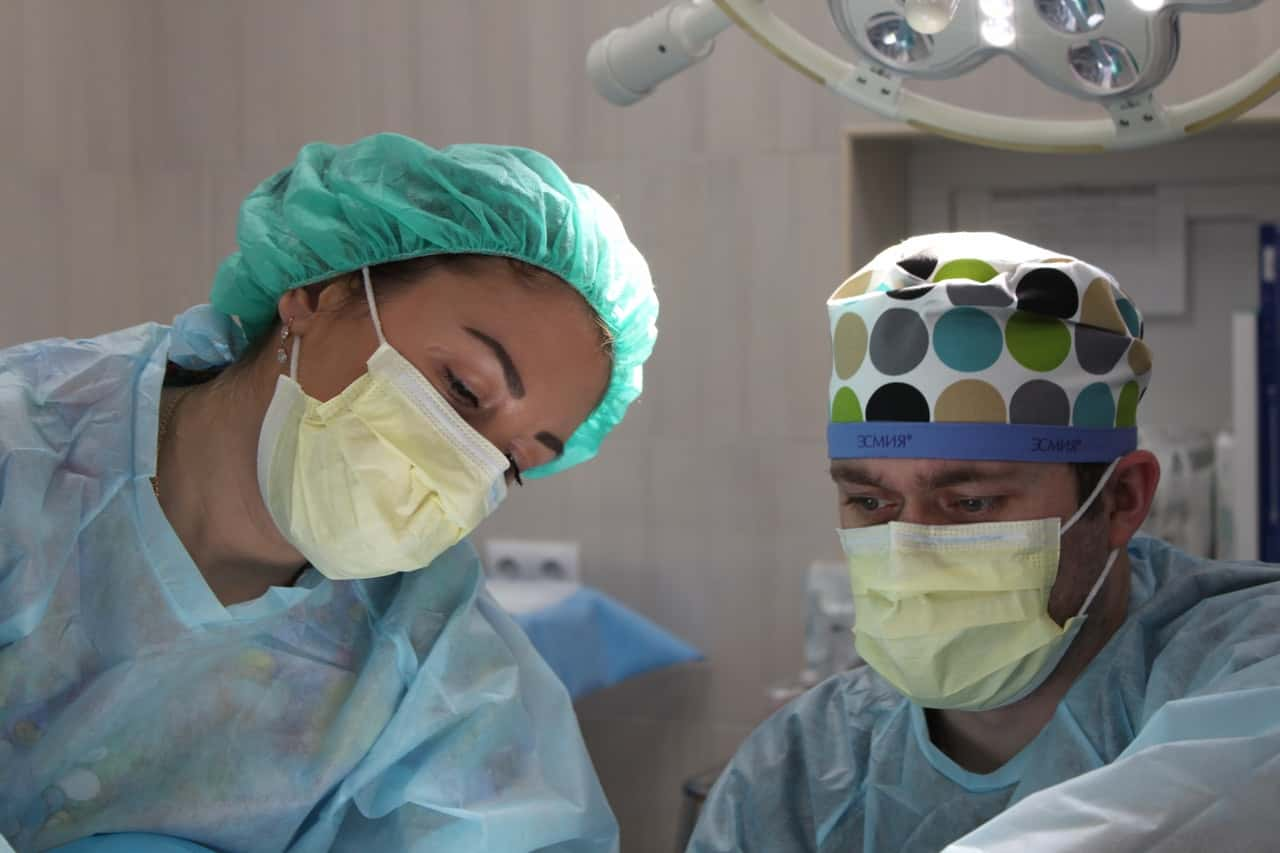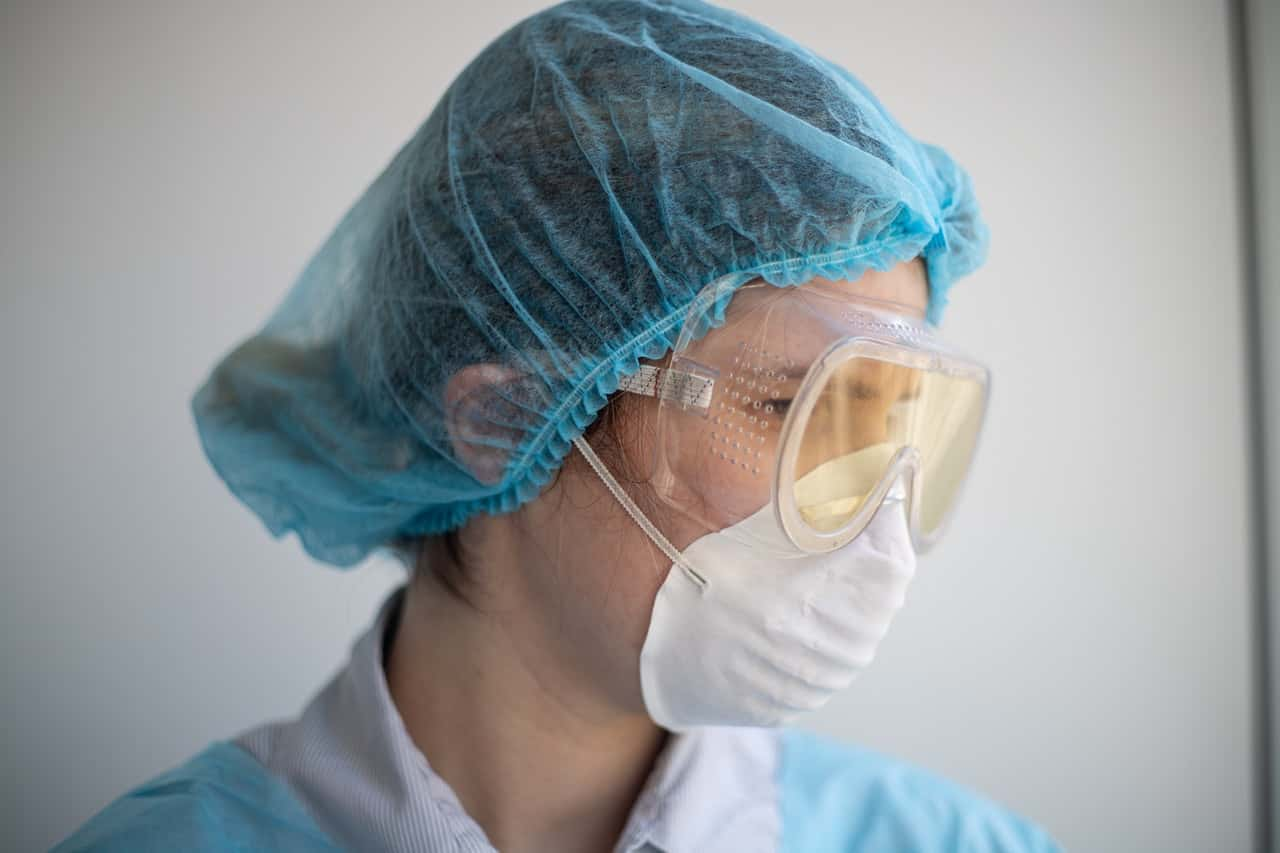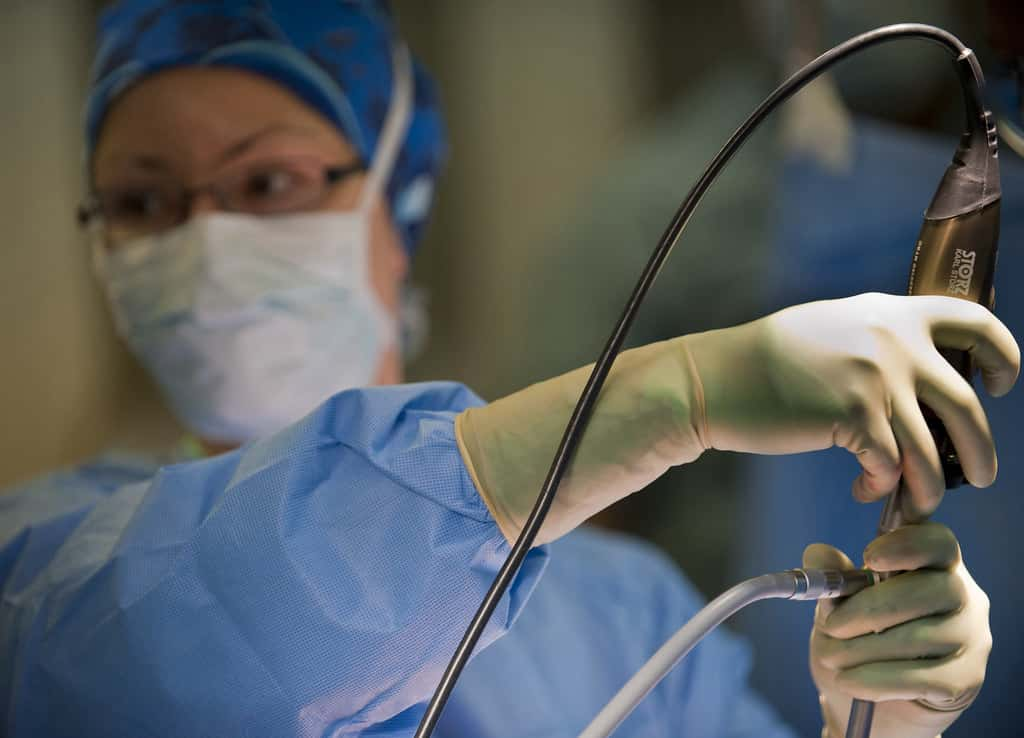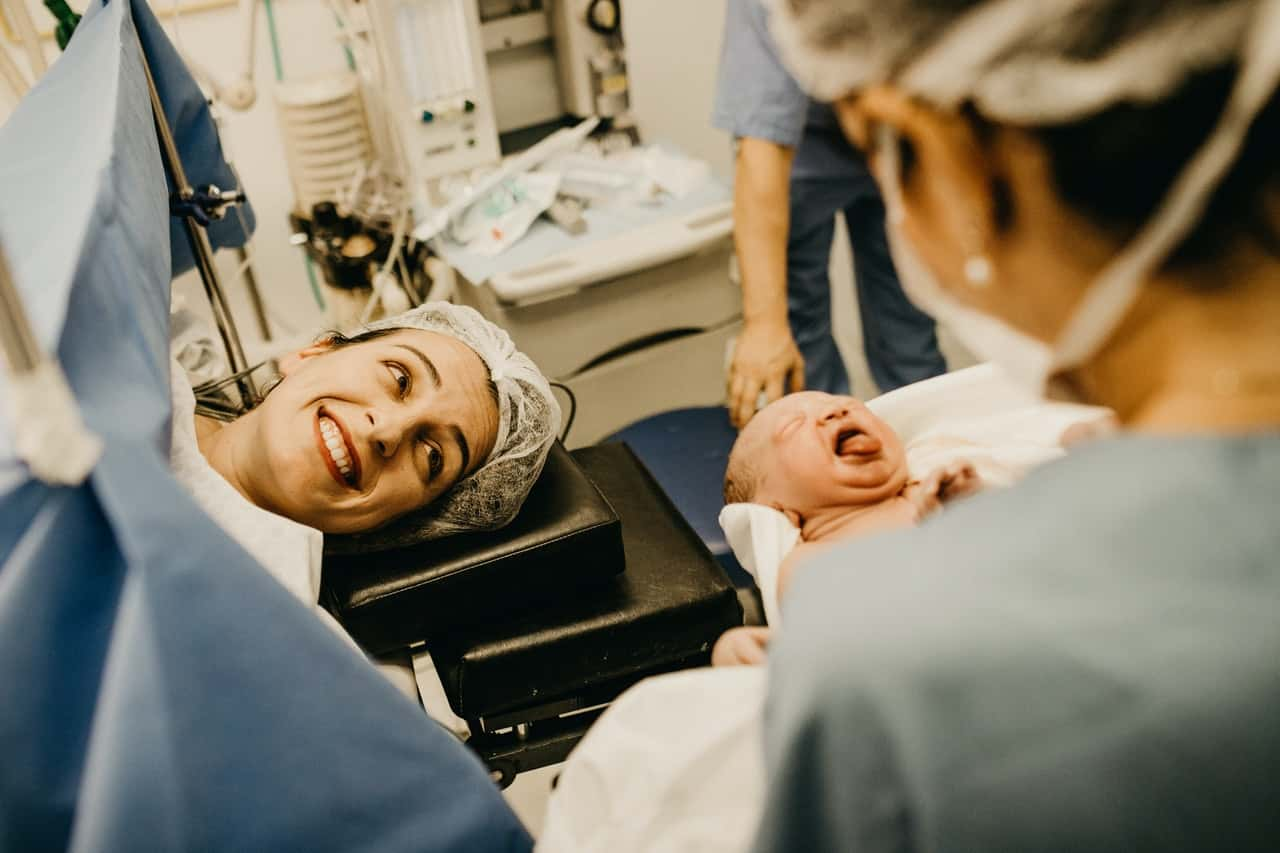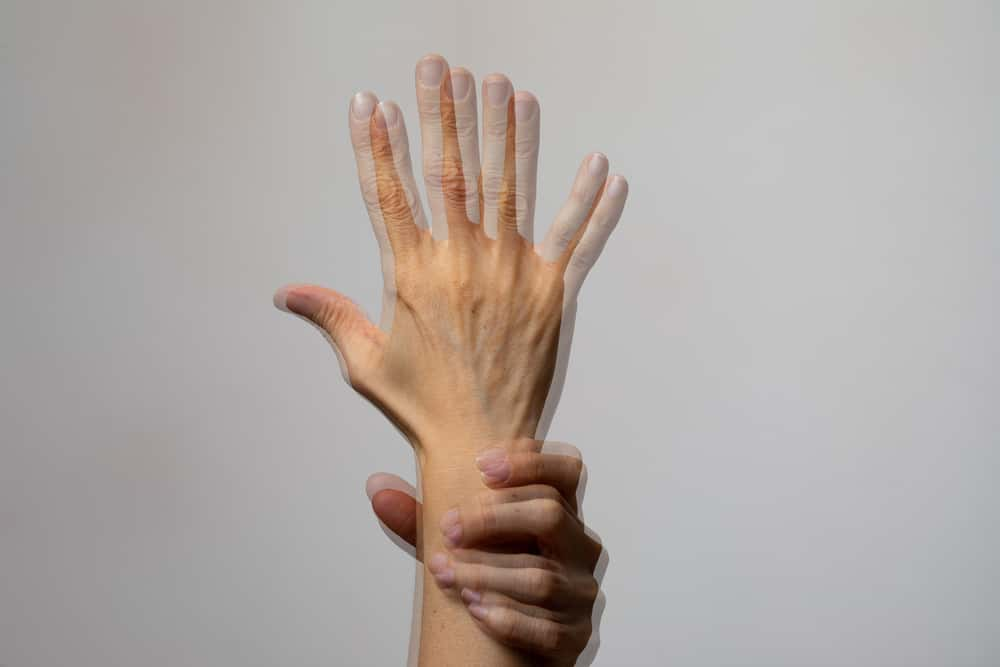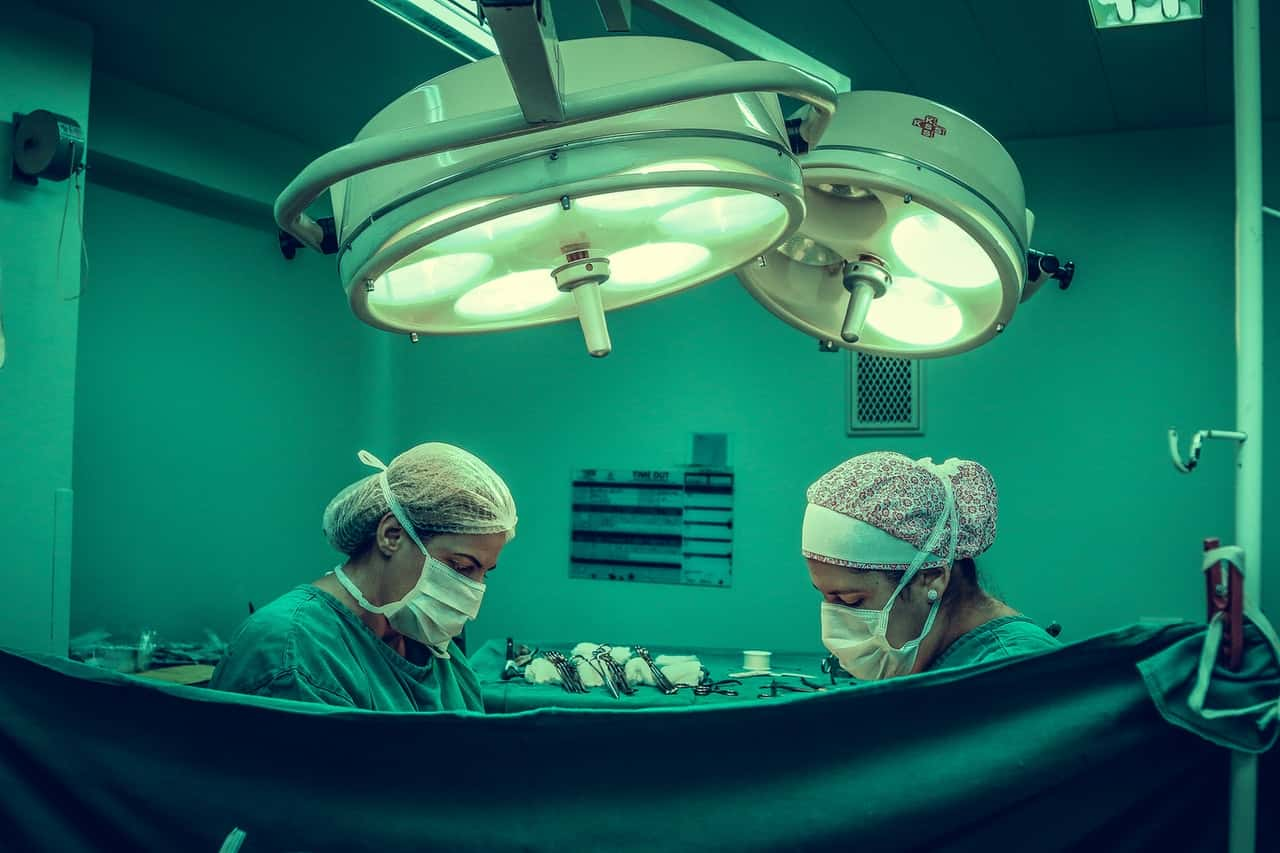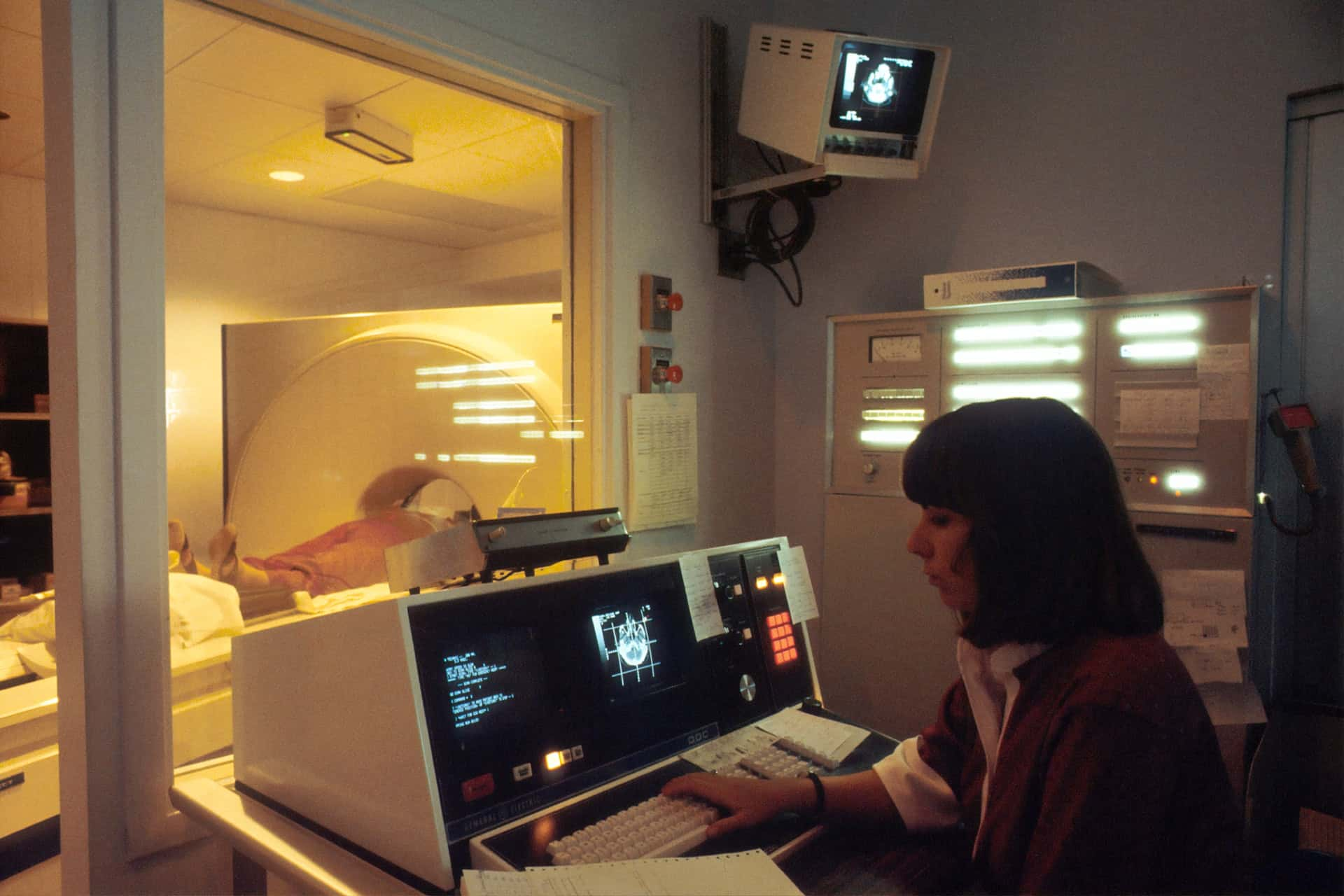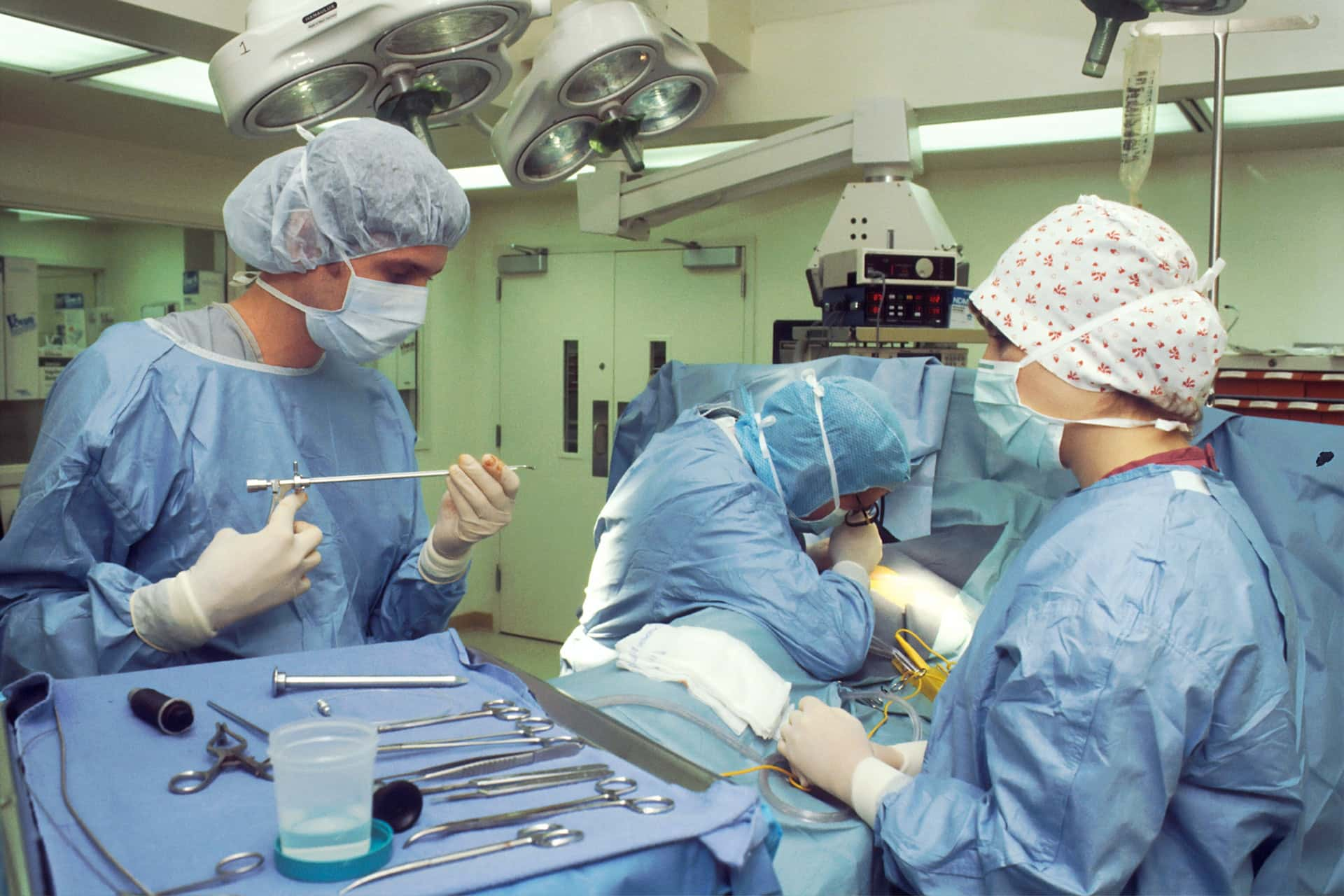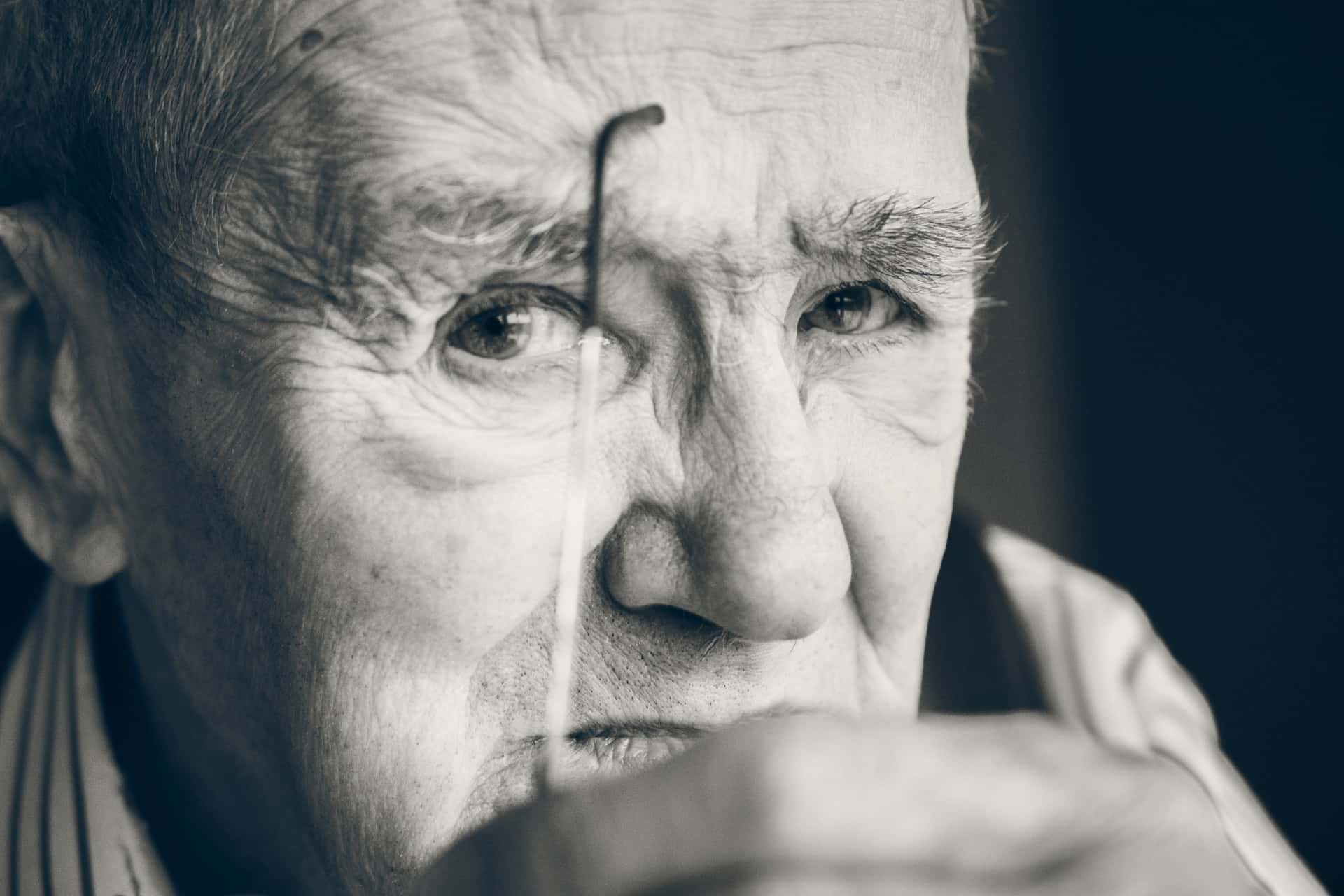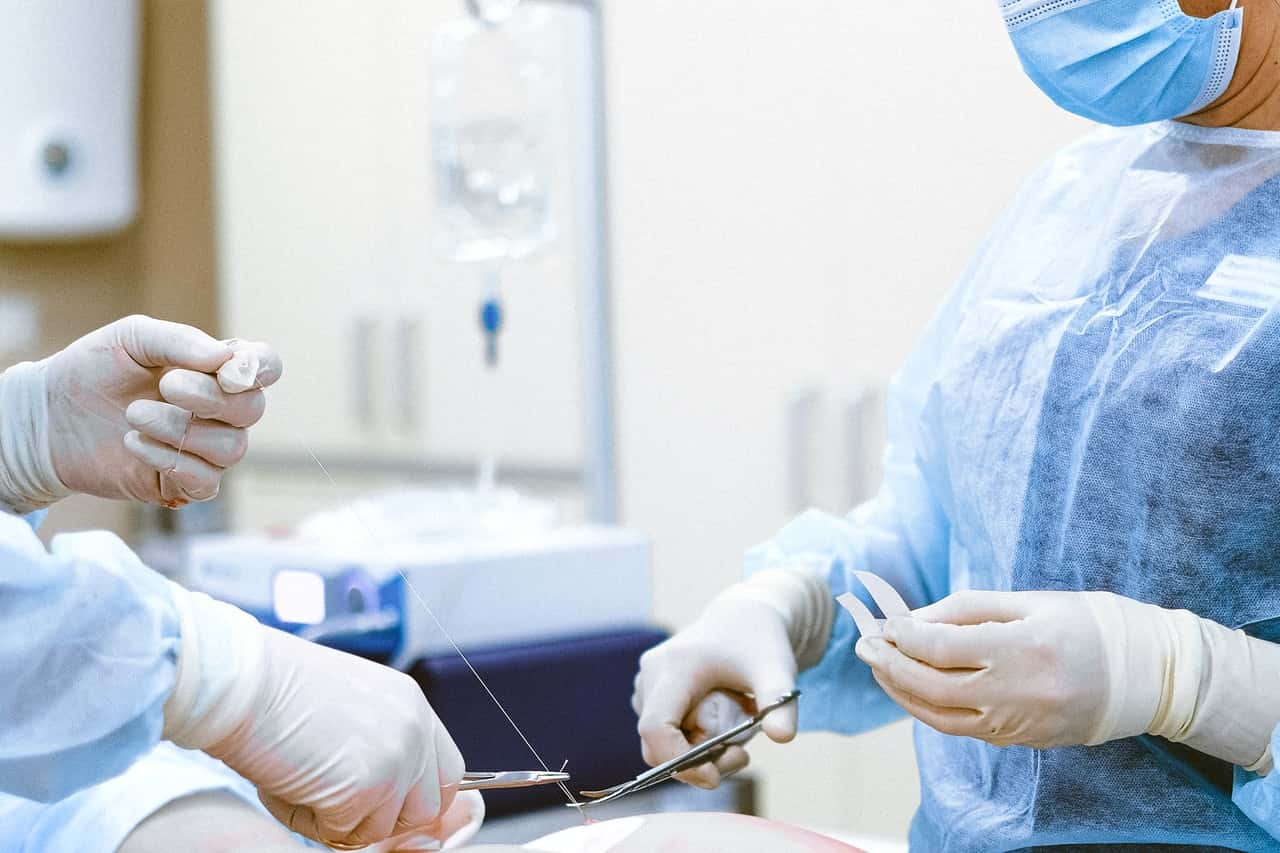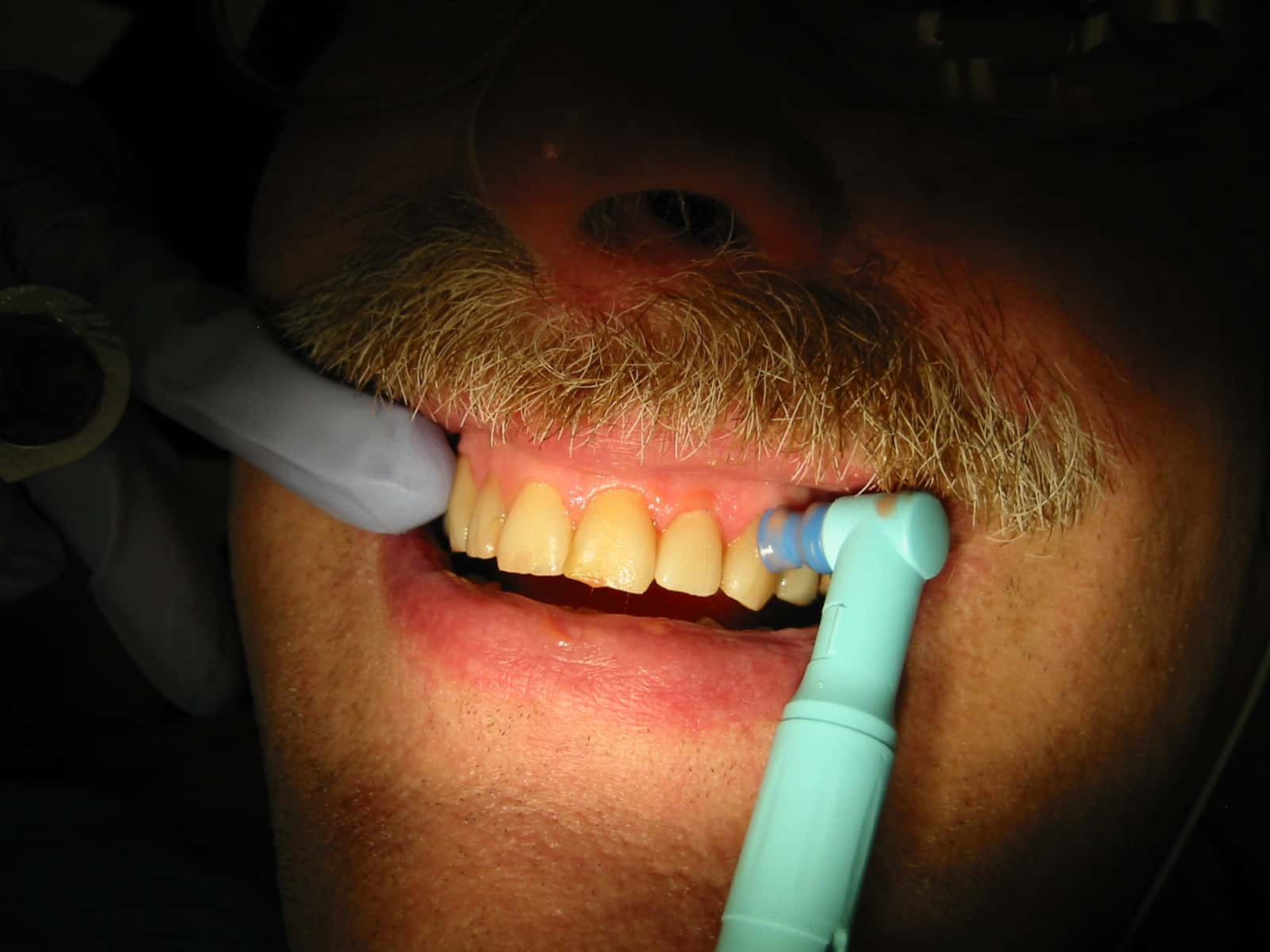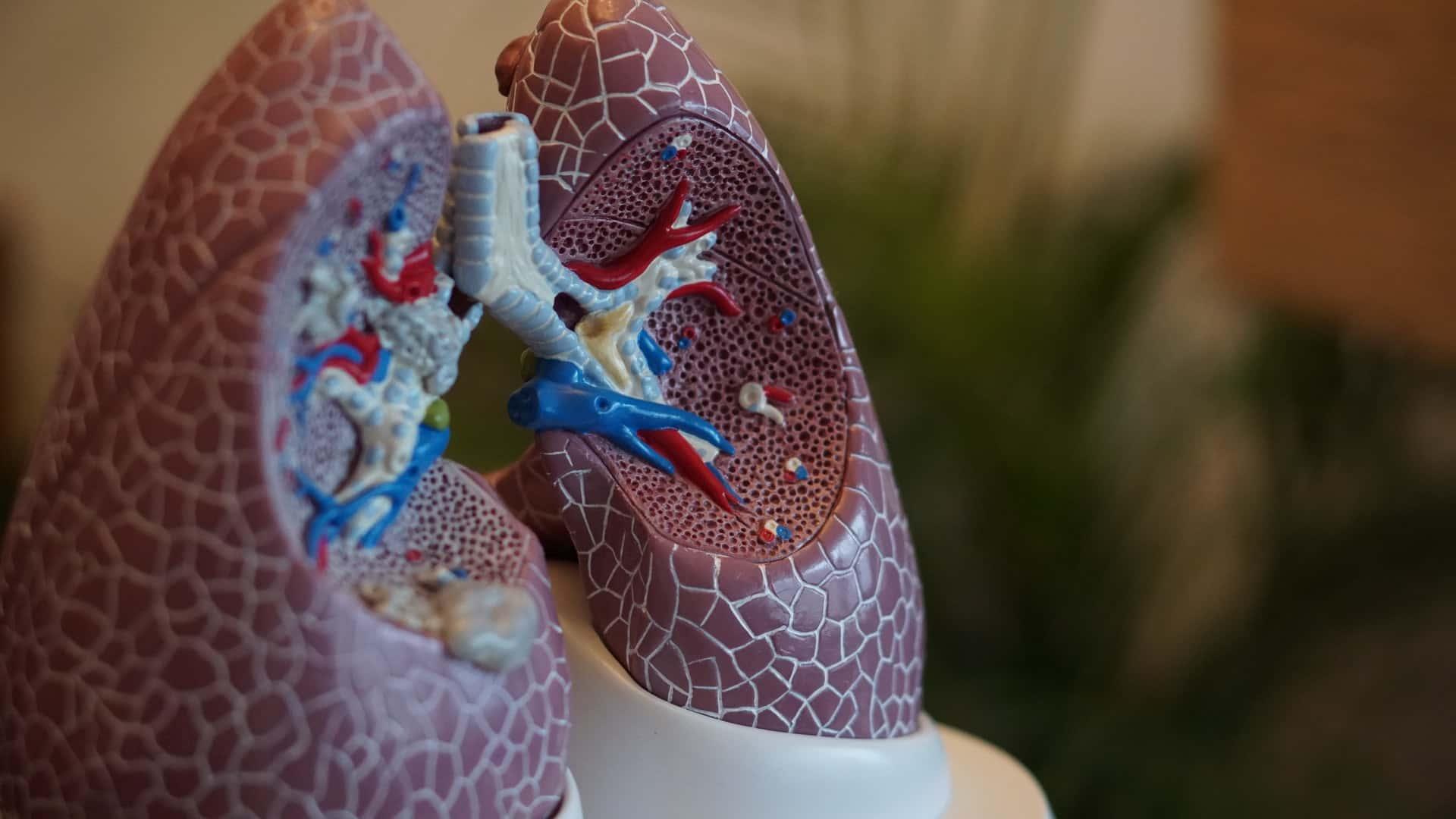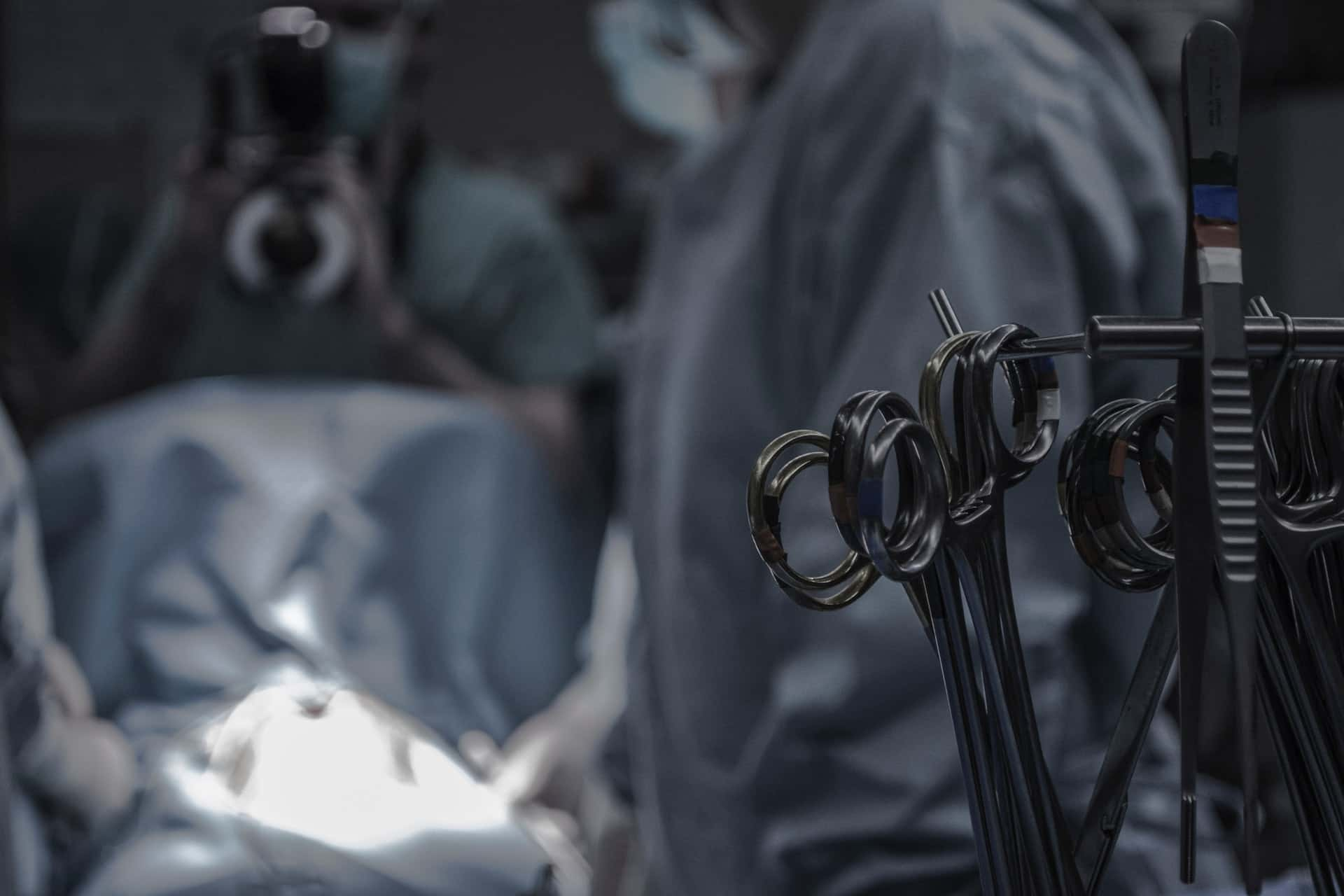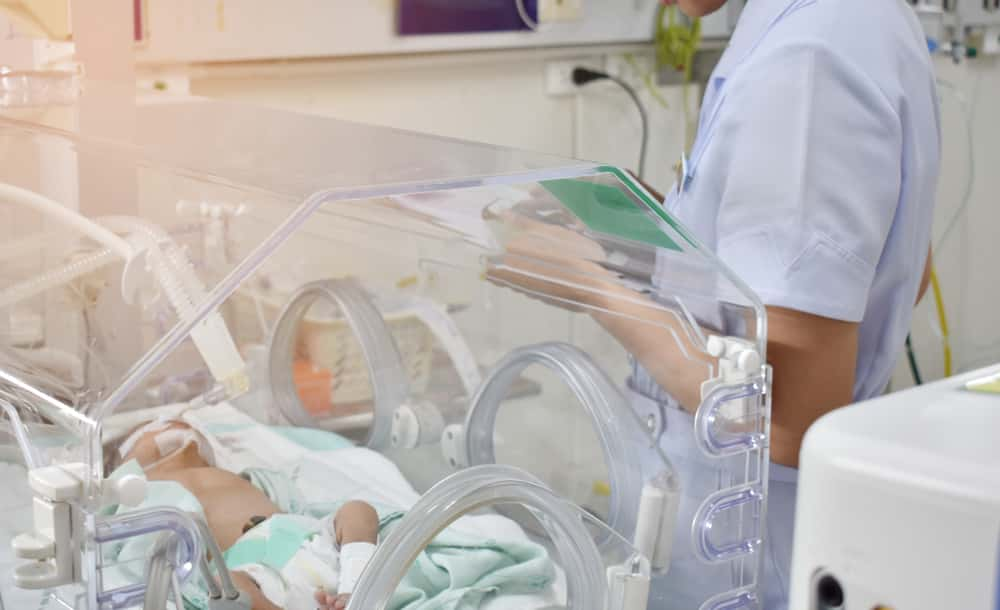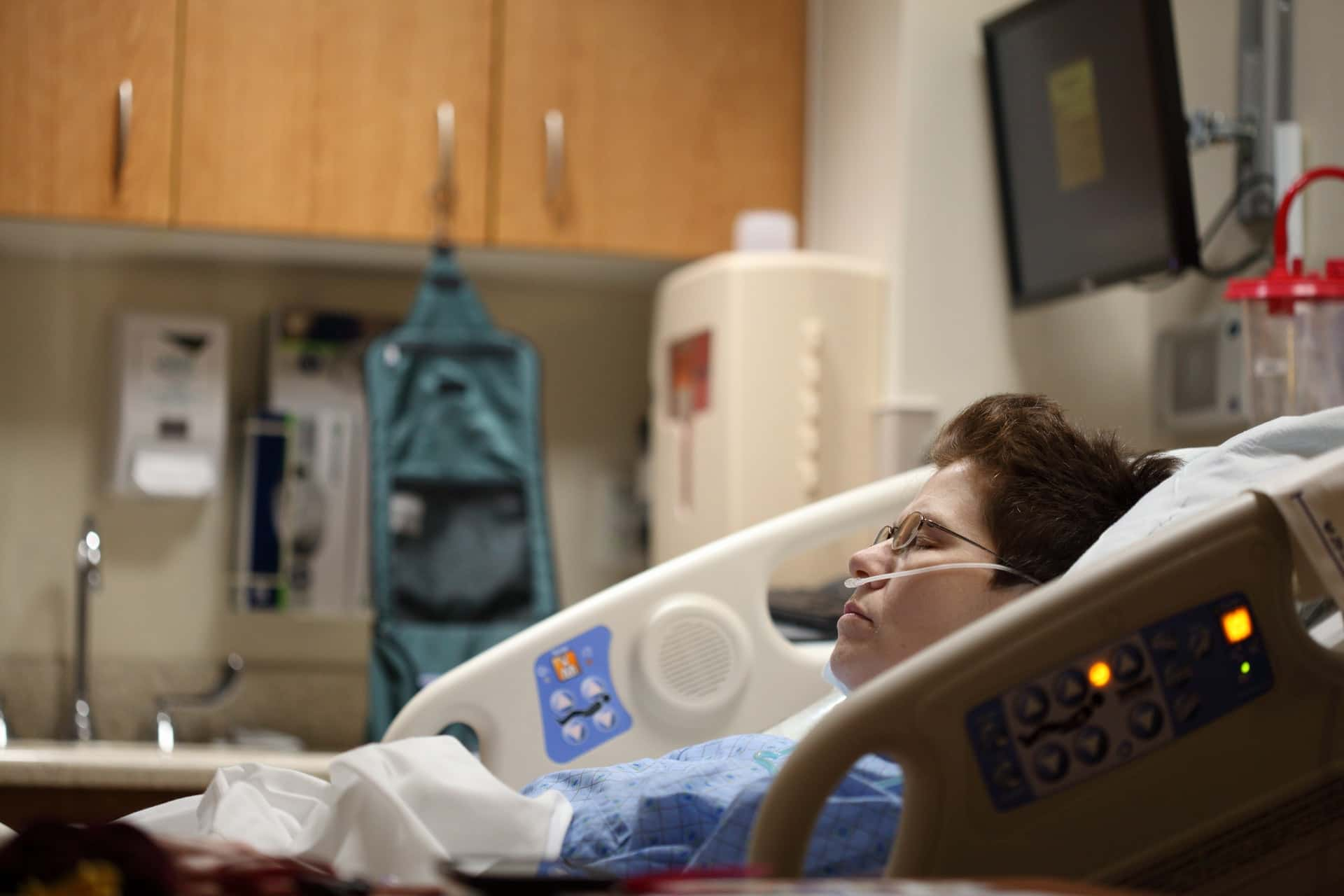From chilling mistakes on the operating table to severe diseases left untreated, these Redditors have lived through the unimaginable. Buckle up, because these unnerving medical horror stories are one wild ride.
1. The Patient’s Always Wrong
My buddy's father had to head to the emergency room. After a brief check, the doctor said he was okay. However, it was a terrible misdiagnosis. Despite the doctor's opinion, he felt something wasn't right and insisted on further tests.
Sadly, while security was escorting him out of the hospital, he suffered a huge brain aneurysm. He didn't survive. Their family received a significant malpractice compensation.
2. The Best GF
Once, I had an accident at work and tumbled down a set of stairs, causing a gash in my forearm. It was quite a bit of blood, but adrenaline kept me alert enough for my girlfriend, who works as a nurse at another hospital, to drive me to the ER.
I had a blood-soaked paper towel on my arm, leading all the security personnel and nurses to conclude I was an addict who had missed a vein. After the drama simmered down, I eventually fainted. I woke up in an examination room, seated in a wheelchair, completely clueless about what had transpired.
My girlfriend seemed to be angrily confronting the staff. She told me they either thought I was high or were accusing me of feigning an injury to cut the queue. Despite the grim sight of the wound on my arm, I knew it wasn't terminal—it was just the shock of seeing my flesh for the first time that made me faint.
The medical team just stood by, doing nothing as I fell unconscious and hit my head on the floor. Despite being much smaller than me, my girlfriend had to maneuver me into the wheelchair herself. That was a terrible experience at that hospital.
3. Paper Trail
I used to work in palliative care, where we would sometimes send patients home, hoping they could spend their final days comfortably instead of in a clinical hospital setting. We didn't have high expectations, but it seemed worth trying.
Frankly, it didn't come as a shock when this patient returned to the hospital after just a couple of days for one reason or another. Since I already knew him, I took responsibility for admitting him back. I was aware of his wish to opt for DNR (do not resuscitate), and I dutifully noted it down. But in the hustle, I missed a critical step.
I just slipped my mind to re-complete the required hospital paperwork. The next day when I arrived at work, I was faced with a shocking revelation. He had experienced a health crisis and was now connected to a ventilator in the ICU.
Instead of peacefully transitioning, his wife was confronted with the heartbreaking task of deciding to end the life support. As a palliative caregiver, my ultimate goal is to facilitate as peaceful and dignified an end-of-life experience as possible.
With my lapse in dotting the i's and crossing the t's, I seemed to have botched it entirely.
4. Stop, Look, And Listen
I work as an ER doctor in the Midwest. We got a patient transferred from a remote rural area to our top-tier care hospital—we've got all sorts of specialists here.
The first doctor described a young 21-year-old man with alarming symptoms: rapid heart and breathing rates, low blood pressure, oxygen levels in the red, confusion, and a bad patch showing up on his right-side chest X-ray. They figured he had pneumonia.
They'd tried everything—loads of fluids, antibiotics, even hooked him up to a respirator—but he wasn't improving. So they decided to send him over to us. We said sure, bring him over. An hour later, he shows up looking surprisingly fit and young for someone supposedly about to drop from pneumonia.
We moved him onto our stretcher, and that's when our mouths fell open—there was a massive open wound on his back. The X-ray showed his right chest was completely filled with blood. We inserted a tube to drain it, gave him a blood transfusion, and rushed him to surgery to stop the bleeding.
The takeaway here: always make sure to give your patient a good look over.
5. Daughter Didn’t Know Best
I worked as a hospice nurse for a decade and once cared for a cancer patient struggling with severe bone pain. I anticipated he had a week or two left. The only thing that eased his pain was morphine, and his wife did an incredible job managing his medication and care.
The morphine was highly effective, making him comfortable. As his life started to wind down, he began to sleep more—quite a normal occurrence. One of his daughters flew in to be with him during his last days. However, she was upset that we were using morphine, causing his wife to panic and give in to her demands.
They ended their hospice care and rushed him to the hospital. At the hospital, the daughter informed the doctors that her father had an excess of morphine, leading the ER doctor to administer Narcan. What followed was truly heartbreaking: He woke up in screaming agony and didn't stop.
He remained in the hospital in constant pain until he passed. Of all my years in nursing, this incident still haunts me as the most terrible experience. I'm not sure what else I could've done, but it's something I still feel regretful about.
6. CT You In The Morning!
When I turned 22, my sister and my boyfriend at the time rushed me to the emergency room. Initially, the doctors assumed I was panicking due to some kind of illicit substance use. It was only after they had a private chat with my sister and ex-boyfriend that they finally trusted my claims.
With some reluctance, they scheduled a CT scan for the following morning. To their surprise, it revealed that I had a brain tumor.
7. Dignity Discourse
A woman in her twenties arrives. Her heart is infected, and her health keeps declining, making recovery almost impossible. The only hope left is administering IV antibiotics, watching the progress, and preparing for hospice care. Despite the IV treatments managing the infection, her heart and valve sustained severe damage.
In fact, this was to the extent that her heart started releasing tiny clots. These clots led to her fingers turning purple and the clots spreading to her lungs. When she reached my ICU ward, she was barely able to breathe. At this point, she chooses to submit a Do Not Resuscitate (DNR) form and prepare for hospice care. But it gets even sadder.
Regrettably, a legal loophole in our state allows a designated health care proxy to amend the DNR if the patient becomes unresponsive, and unfortunately, that's just what transpired. Her mother got the court to assign her as the healthcare proxy.
This implied that once her daughter was disoriented, all health decisions would be in her mother's hands. Directly after gaining control, she rescinded the DNR, and against our wishes, we had to put the young woman on life support.
This turned into a months-long ordeal where her arms and legs started changing color, first purple, then black and green before becoming necrotic. With failing organs and clots having reached her brain, she was nonresponsive. We were certain that her suffering shouldn't be prolonged.
We put forth her case to risk managers, conducted several ethics meetings and repeatedly took the mother to court to yearn for our patient's right to pass away with dignity. Despite our efforts, the court did not comply, allowing the mother to keep the control.
8. It All Comes Down
Back in 2011, my dad had to undergo triple bypass surgery. Just as they were wrapping things up, the worst happened. A vent from the ceiling came crashing down, contaminating almost every single thing. They had to disinfect my dad so thoroughly that he looked like a Smurf when he emerged from the operation.
The surgeon, an ex-army medic, was absolutely livid. He candidly informed us that if my dad contracted any kind of infection post-surgery, we'd practically own the hospital. Thank goodness, my dad recovered just fine and is now fitter than he's been in quite some time.
We heard that the maintenance team was given a royal dressing down, and the incident is still a hot topic at the hospital to this day.
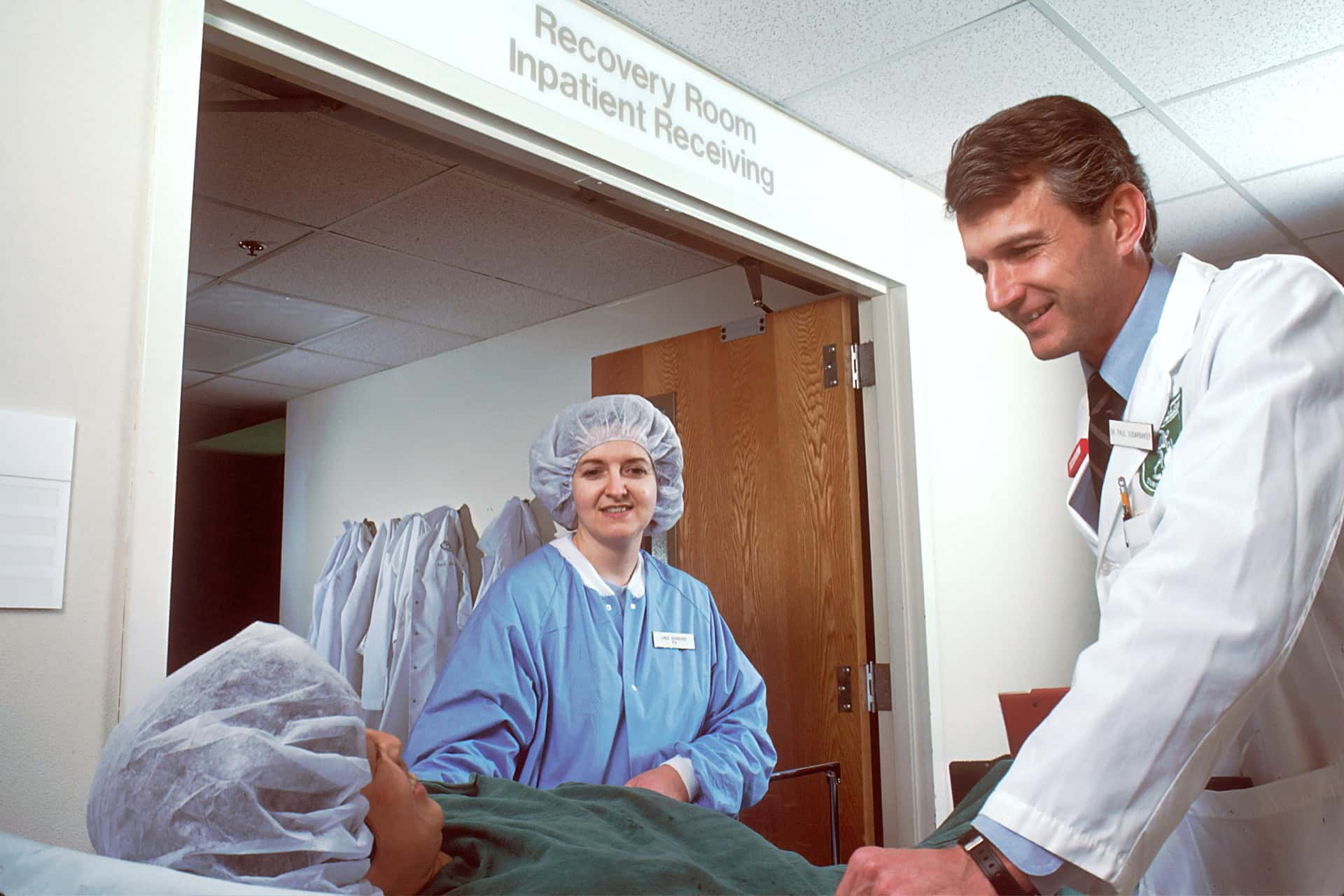 Unsplash
Unsplash
9. A Quirky Defect
When I was studying medicine, a patient came in with his brother for a routine post-op checkup following a hernia surgery. Surprisingly, we found another hernia the size of a baseball. But that's not even the wildest part. His brother, interestingly, had a hernia the size of a football visibly protruding out of his shorts on the left leg.
It appeared to be an inguinal hernia—so large that he even used it as an armrest. I asked him if it caused any discomfort, to which he replied, "My brother's hernias were painful, but this one doesn't bother me, so I assumed it was just a peculiar abnormality".While I hope he was just joking, we strongly advised him to see a specialist.
 Shutterstock
Shutterstock

History's most fascinating stories and darkest secrets, delivered to your inbox daily.
10. A Hairy Situation
This story dates back to my time as a medical student, but it remains one of the most unusual things I've ever witnessed. It occurred during my final rotation before graduation and the start of my residency.
Having fulfilled my necessary coursework, I decided to round things out with electives that covered areas I hadn't yet explored, one of which was a dermatology rotation at the VA. The rotation was interesting and relaxed overall. Near its end, I was examining one of my last patients as a student when a man presented an unusual symptom: "I have hair coming out of my hand".
At first, I assumed he was describing a peculiar mole sprouting hair, but the man—in his late thirties or early forties—clarified that the hair was emerging from beneath his skin. Intriguingly, the man worked as a barber.
At times, hair can pierce the skin—a scenario that isn't entirely rare for barbers who predominantly cut men's hair, given its shortness and sharpness. It's akin to receiving a splinter, but with hair. The man, however, insisted that the hair's presence was significant.
Upon holding up his hand and making a fist, numerous hairs protruded from between his index and middle finger knuckles. Even as the attending doctor extracted several short, black hairs showing clear disbelief, the man noted he had already removed around fifty.
Upon numbing and incising the space between the first two knuckles, we were astounded by the overwhelming amount of hair concealed within. Removing dozens of hair strands at a time, we were in awe at the mass uncovered.
At some point, even after the doctor implemented magnifying glasses with an attached light, she exclaimed, “There are still more in there!” She then asked the crucial question—did the man know the cause? His response was unsettling: pointing to an unhealed hole in his hand, he indicated it was likely the root cause.
The man had suffered a cut about two years prior which, due to his diabetes, never healed properly. Unfazed, he continued his barber work, inevitably causing a few hairs to embed in his wound daily, over those two years. The accumulated hair had tunneled through his fingers and out the back of his hand.
The ensuing 30 minutes consisted of us coaxing waves of hair from his hand. Nevertheless, the doctor warned him, “There’s no way I got it all out, so you have to come back every two weeks for a few months for us to keep removing more hair".
11. The Root Of The Problem
My husband and I were just playing around when he ended up chasing me through our kitchen. But as I made a sharp turn to my left, he slipped and fell. He's a pretty big guy, so falls can be a bit more painful for him. He immediately knew he was badly hurt as he couldn't put any weight on his leg.
He managed to crawl to the couch, though, and reassured me that his pain was bearable. He opted to stay and sleep on the couch that night to avoid the stairs. We planned a visit to the emergency room the next morning, but there was no appointment available until 2 pm.
He was dealing with a constant yet bearable pain as we waited at home. However, when we finally got to the hospital, we were hit with terrifying news. Turns out, he had broken his hip, detaching the entire ball joint from his femur. The hospital staff was astonished that my husband managed to sit and sleep with such an injury.
That totally indicated that we should've sought help immediately, perhaps even calling an ambulance the previous evening. Putting his hip back required surgery and some heavy-duty screws. But, surprisingly, this isn't normal for a healthy man in his thirties to snap his femur just from standing. It led us to an even more shocking discovery.
After further investigation involving multiple tests and an MRI scan, it was revealed that my husband had early-stage osteoporosis. But here's the most astounding part: IOt was caused by a pituitary brain tumor. Yep, you heard that right, we found out about his benign brain tumor all because of his slippery socks.
 Shutterstock
Shutterstock
12. Up In Smoke
A teenage girl, who was simply enjoying a nap at home, became my patient when a negligent driver crashed into her house. This sparked an electrical fire, ignited a ruptured gas line, and set the whole house on fire. She had initially escaped with her sister, but she went back in to save her dad and dogs. The consequences were devastating.
When firefighters rescued her, 95% of her body was severely burned. She was rushed into ICU showing signs of smoke inhalation, severe lung damage, carbon monoxide, and cyanide poisoning. She survived the intense trauma of the initial incident but was facing an uphill battle in the burn unit—things were set to get worse before they improved.
The only unscarred skin was a small section on her inner thigh. Her face, including hair, eyelids, and lips, were burned beyond recognition. We managed her condition with moist sterile dressings, removed tissue, and administered broad-spectrum antibiotics. By the end of the day, she was fully wrapped up like a mummy.
Sadly, the likelihood of her living a normal life again was extremely low, and her chances of survival rapidly dwindled to single digits. After a few days, the first signs of infection started to show. The extent of her burn wounds created a perfect breeding ground for infections.
At this point, intravenous and topical antibiotics, along with further tissue removal, were the best options for promoting healing. Essentially, the process involves scraping away expired cells to prompt new skin growth and it was most effective on larger wounds.
Weeks of these treatments ensued, with multiple sessions every week. One day, during surgery, I couldn't help but express, "This is the worst thing I've ever seen in my life". Even after several years in medicine, this sentiment still holds true. Nevertheless, we pressed on with skin graft surgeries to reconstruct her face and cover her body, which she amazingly survived.
Each of these procedures took, on average, about 10 hours and had to be performed under severe conditions. We had to maintain the operating room temperature at around 98 degrees because burn patients are prone to rapid heat loss. This meant enduring ten-hour shifts in full scrub gear in near 100-degree heat.
13. Little Red Dots
When I was around 16, I noticed these small red, inflammation marks appearing on my arm. My mom instantly said, "You probably have psoriasis, try some sunbathing". So, I tanned for about a week, but things got worse. The spots spread all over my body, even my eyelids weren't spared. Finally, I decided to visit the doctor, where he made a troubling discovery.
It was ringworm I was dealing with. The awful part? The tanning, as it turned out, didn't help; instead, it was just further spreading them, as the lotions I was using were effectively facilitating their growth during the tanning process.
14. Never A Dull Moment
I was in my fourth year of residency and it was my turn on call that day. At around 5 pm, I embarked on a round of patient visits. As I entered the first room, I encountered a jarring scene. The first-year resident was hunched over a patient who had just undergone neck surgery. Her clothes and hands were drenched in blood.
Blood was splattered on the ceiling, soaked into the sheets, staining the bed, even dripping onto the floor. It was a horrifying sight. I instantly figured out that his carotid artery had been ruptured. I'd never managed to repair one before and suddenly felt deeply inadequate. I urgently needed help, but as the senior resident, I was the only doctor on call at that moment.
What's more, there was simply no time to wait for additional support. The patient was hemorrhaging. It struck me that I was the only one who could help him. Swiftly, I rushed him into the OR and, with heart pounding, prepared for surgery assuring myself, "It's OK, I have to do this. I can do it". Everyone's eyes were upon me, expecting me to save him.
Upon opening him up, I caught sight of the ruptured artery, spurting blood unchecked. I clamped it, secured it with a knot, and it was done. After closing up the wound and bandaging him, I ordered blood for him to be transfused. Then, I sank onto a stool, feeling utterly drained.
15. The Swamps Of Dagobah
I'm a nurse. One night, I got called in around 2 AM for "general surgery". Given I lived in a town populated with young army personnel and habitual users, late-night emergencies were frequent. When I arrived at the hospital, I learned the surgery was for an abscess—not the best news, but typical.
I went to the ER to pick up the patient. When the ER nurse handed me the chart, she said: "Good luck with this one". A warning bell in healthcare circles. My patient was a hefty 314 lb woman who barely fit on the stretcher. She was writhing in pain and uttering Hail Marys. It took me a while to affirm her identity.
I thought it would be best to get her to the anesthesiologist as soon as possible, considering her distress. The journey to the Operating Room was dramatic, with her nearly falling from the surgical table due to her pain. We often see patients like this, chronic users with high tolerance levels. It's hard for them to manage pain.
Once she was asleep, we started the procedure. We were geared head to toe for surgery, yet we weren't prepared for what we were about to face. What appeared to be a regular abscess from her self-inflicted injections, was indeed a deep infection leaking pus and rotten tissue from her colon into her abdomen.
At the incision site, an inhuman mixture sprang out onto us. Despite our protective gear, this was far more intrusive. As the surgeon kept cutting, the flood didn't subside. Every contraction she made amplified the situation, expelling this murky fluid onto the floor and into another nurse's shoes.
The putrid smell soon made the other nurse puke in her mask and leave the room. I hurriedly ran to fetch a bottle of peppermint concentrate that aids in masking unpleasant smells, only to find it was empty. Settling for Mastisol, an adhesive rub used for bandaging, we managed to avoid the nauseating smell and resume the surgery.
In hindsight, the mild high from Mastisol inhalation probably got us through it. By then, the stench had filled the hallway and our operating suite resembled a filthy sewer. The anesthesiologist and I worked silently, while the other nurse stayed at the front desk, dealing with a churning stomach.
After packing the wound with gauze, we sent the patient to recovery. Cleanup involved several bottles of a special disinfectant to eliminate the soaked-in smell and countless hours for the housekeepers to suction the debris. The room was quarantined for days to clear out the pungent smell.
As the surgeon and I were leaving, he looked at me and said: "That was bad," the first negative statement I'd heard from him in the three years we've worked together. That incident was truly an unprecedented one.
16. It’s In Your Head
I'm no medical expert, but I'm so thankful my parents decided to seek a second opinion when I was suffering from a severe headache. One day, I left school prematurely because of my throbbing head. The doctor I initially saw claimed it was simply a virus and suggested I take a rest and some medication. So, I went home, had some Advil and continued my day.
But by 1 am, I found myself on the floor, screaming in agony. My parents quickly took me to a different hospital where they conducted several tests. After a while, they performed a spinal tap and found a large number of white blood cells. As it turned out, I had contracted bacterial meningitis.
17. The Tell-Tale Signs
A couple of years ago, I had an extraordinary childbirth experience. I was in labor for 28 hours and pushing for six when my child began to show signs of distress. There was a spike in the baby's heart rate. My midwife informed me that a doctor was on the way to check if vacuum assistance could help.
The doctor conducted a check and immediately stood up with her hand covered in blood, announcing, "We're going to the operating room NOW". I began to feel overwhelmed and scared, yet I trusted the doctor's decision. We were in the OR just eight minutes later. Once they opened me up, I heard the surgeon say, "Oh God. Look at this".
They had found blood in my urine bag, upon further investigation, they discovered my baby was trying to come through my uterus, causing it to rupture. They acted swiftly and my son was delivered, a healthy baby. Though the moments before he cried felt enormously long.
After waking up in my room, the doctor explained what had happened. I knew a ruptured uterus was grave. I made the mistake of googling it and the information caused an anxiety attack. A ruptured uterus is rare and typically fatal. It takes roughly 15 minutes before the mother and child could pass from blood loss.
During my return visit, my midwife told me this was her first encounter with such a case, it was big enough that a meeting was called to discuss my case. I am truly thankful I gave birth in a hospital. The medics' intuition, based on my vitals and my baby's signs of distress, enabled them to act even though the problem wasn't initially clear.
I am forever indebted to Dr S who saved both mine and my son's lives. For that, our family will always be thankful.
18. Hidden Agenda
I work as a paramedic. I've got countless tales, but one will forever linger in my mind. It was a rainy spring afternoon. We received a call about a tipsy person knocking on random doors of houses. Usually, this should have been a job for the authorities, but they were buried and busy.
We arrived at the site—quiet, without any flashy lights or blaring sirens. Exhausted, I remained seated in the passenger seat, just rolled down the window. "Hey!" I called out to the old man at the porch, "What's going on?" He stopped banging on the stranger's door and started ambling towards our ambulance.
The elderly lady of the house, visibly relieved, drew her curtains shut. "I need to lie down!" the man said. I exchanged glances with my partner. Henry Ford Hospital was just six blocks away. Could we drive him there? "Climb into the back," I told him, "If you vomit in my vehicle, you're cleaning it up with your clothes".
He clutched his chest in the pouring rain and said, "But my chest hurts". Feeling jaded by it all, I retorted, "Same here, buddy. Let's both go to Ford and get checked out". The man started fumbling with his coat buttons, which prompted me to turn up the heater.
When I looked back, he had opened his trench coat to show me his pain point. What I spotted still sends shivers down my spine. There, right in the middle of his chest, contrasting against his white sweatshirt, was a sharp, distinct POWDER BURN.
A substantial one. Point-blank wound to the chest. Shocking. The following few minutes were a whirlwind— dashing out to catch the man who was about to collapse; my partner swiftly pulling out the stretcher, getting him on and tucking him in the back; slicing clothes off, an oxygen mask applied.
"Drive, drive, drive!" we yelled, racing the six blocks towards the hospital. During the short ride, I only managed to start one IV. In 25 minutes, he was gone. When we wheeled him into the trauma room, the exit wound was almost the size of a fist.
The doctors consoled us that immediate surgery, right after the injury, was the only help possible. But it didn't make me feel any better. In hindsight, we wasted 10 minutes with the man, just talking in the rain. This was the last straw for me. I took a week off, and two weeks later, I resigned.
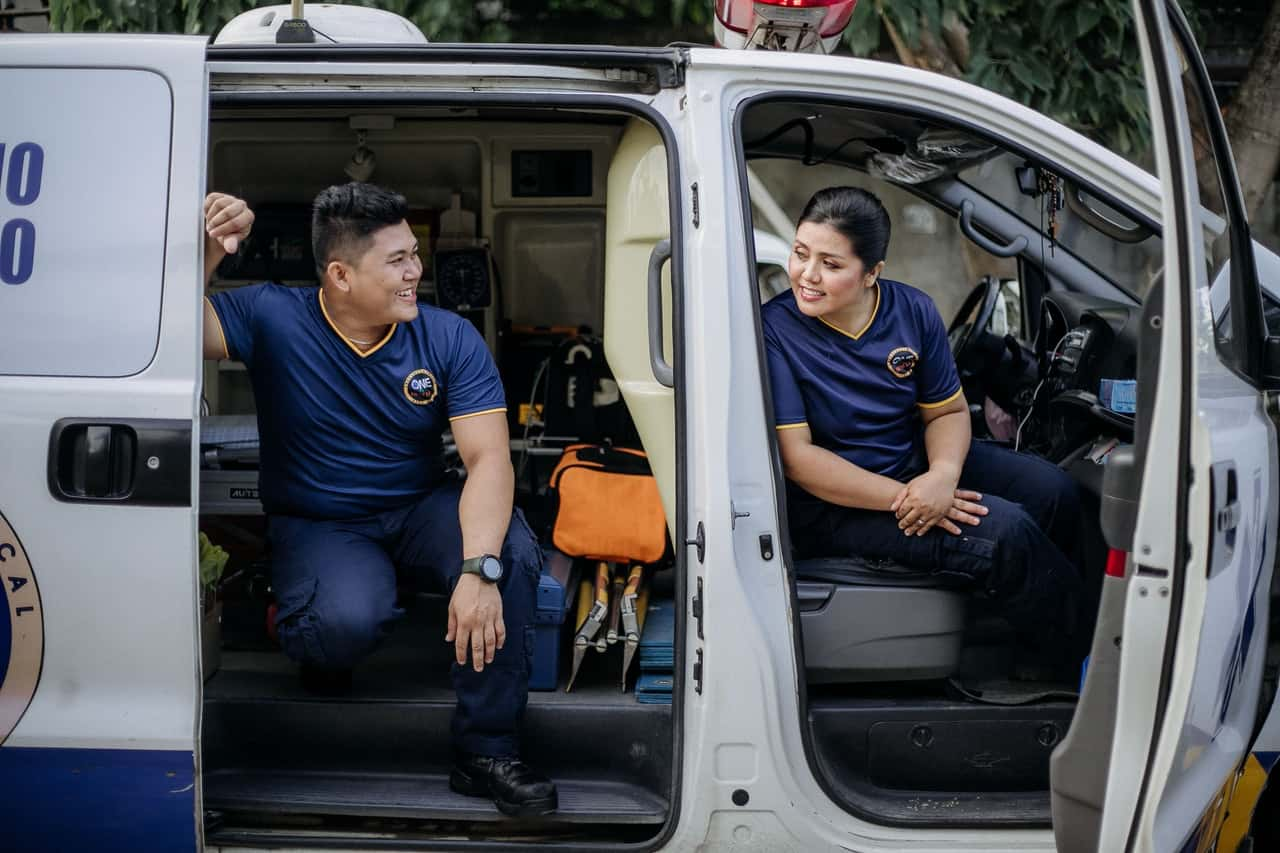 Pexels
Pexels
19. A Lady And An Officer
I'm employed in a psychiatric department, and one unforgettable night involved a 55-year-old woman dealing with mania. She was admitted suffering from hypothermia after diving into a nearby river in the middle of winter. She believed that the CIA was pursuing her, citing her past service in the Navy.
During our consultation, the only information she gave willingly was her name and army rank. She insisted that she'd only share more details with someone of "officer" status. Just as our evaluation was wrapping up, she bolted out of her bed and streaked across the bustling emergency room.
Our diligent nurses apprehended her as she repeatedly yelled her name and rank. We were eventually able to sedate her and securely transfer her to the psychiatric unit.
20. I Hope This Isn’t Personal
From 2012 to 2015, I battled Crohn's disease, regularly in and out of hospitals due to complications like malnutrition, anemia from blood loss, an inflamed colon, and infections. No medicine seemed to dampen its effects. Then two months after my diagnosis, I was struck by another ailment, Pyoderma Gangrenosum.
So there I was coping with painful, open wounds on my legs. These required cleaning twice weekly and a hefty dose of painkillers. My resistance to these meds increased over time, leading to escalating doses from 5mg to 20mg over a span of eighteen months. I was on a daily rotation of 5mg Valium and 10mg morphine five times a day just to keep the pain at bay.
During one of my frequent hospital visits, I was dashed off to a larger-scale hospital due to their advanced resources and a specialty ward adequate for my digestive problems. A few weeks in, I hit a severe roadblock. I had severe stomach pain followed by ceased bowel movements—a massive red flag.
While I continued to pass blood and tiny chunks of waste about 50 times per day, that ceased abruptly one night. I informed the medical staff, pleading for a thorough check-up as I showed my bloated stomach, mimicking a six-month pregnancy. But all I got was a routine daily touch-base without further investigation.
Amidst the rising pain, my tears freely flowed, sleep evaded me, and I stopped eating altogether. I also began vomiting and my condition continued to deteriorate. On the sixth day, an ultrasound machine finally arrived. After scanning my abdomen, the response was a quiet, "Ah, your intestines are entangled, you need a surgery".
The next morning, a surgery was performed to remove my entire large intestine due to the severe damage caused by the entangled and inflamed intestine. Now, I live with a permanent stoma for waste removal. The reason for the week-long idleness? The doctors had mistaken my complaints for a potential addiction to pain meds.
They assumed my pleas were attempts for more meds despite not specifically asking for any. And all of this was based on the presumption of a doctor who never even met me face-to-face, but based his judgment purely on my medical history.
21. Not One, But Two
My eldest son was 11 and needed a physical for his youth football league. He'd mentioned that his ankle was bothering him mid-baseball season, so she asked him to remove his shoe. Upon doing so, she indicated a peculiar bump on the side of his foot, stating he had a break.
I found it hard to believe because his other foot had the same feature. She inspected that foot too and said, "Well, he has TWO broken feet". We were then directed to get X-rays at the hospital. In my mind, I chuckled, finding it hard to believe that my son, who not only just finished a baseball tournament but had been gleefully sprinting and jumping at the pool just an hour before, had two broken feet.
However, my amusement quickly turned serious when the X-rays confirmed the doctor's prediction. It was then that we discovered how flat feet could develop unnoticed stress fractures. He had to wear a cast for eight weeks and was prescribed special footwear with insoles for life. His feet continue to be misshapen, but that has never hindered him from being active.
22. The Digit Details
One day, someone phoned our clinic to report a hand injury, asking if we had the capacity to handle a few stitches. However, they forgot to mention the most important detail—that they had been using a table saw and had almost sliced off three fingers. Their tendons were visible and cut through—a critical situation.
I quickly directed them to the nearest hospital. Luckily, a hand specialist came to the rescue, and they were able to save their fingers.
23. No Laughing Matter
One evening, a young man walked into the emergency room, laughing off a deep wound he had received. He showed up at 3 am, hours after the incident, before he finally decided he needed help. His family and friends came along, and they too, didn't seem to understand the severity of his injury.
When we checked him out, it was a critical level one situation and his blood pressure was really low. His heartbeat began to race as his body struggled to cope with the blood loss. The minute we got him into a room, his condition worsened to an alarming degree and he lost consciousness.
We frantically tried to revive him with an intense procedure that involved opening his chest and manually pumping his heart. His abdominal aorta had been pierced by a blade and had burst. Yet, the eeriest part was still to come.
Returning to the waiting room, we found his friends and family casually having a pizza party, completely oblivious to the life-threatening condition of their loved one.
24. Ride-Along-Astray
While I was a novice EMT, on my initial ride-along, we answered a call from a skate park where a guy had taken a tumble. Upon arrival, he seemed okay, walking around, talking sense and fully aware, despite not having a helmet on during the fall, with a budding bruise over his eye.
We saw no cuts and his eyes were reacting normally, so we presumed he just had a concussion and a potential black eye. However, we convinced him to accompany us to the ER for a professional examination. Once we had him settled in the ambulance, we noticed his blood pressure had decreased substantially from our first reading.
Things got grim rather quickly as he began to get drowsy and vomited blood. We activated the sirens, started IV fluids, but his blood pressure continued to plunge. By the time we reached the ER, he was unconscious. Overlooking the bruise meant we didn't recognize the swelling skin and shattered bone around his eye and cheek that resulted from internal bleeding.
Eventually, he had to undergo urgent brain surgery, during which they discovered and excised a tumor. Thankfully, he recuperated and got back to skateboarding, but this time, we hope, with a helmet.
25. Fancy Seeing You Here
My patient came in with a severely infected foot abscess. The entire foot showed signs of cellulitis, so we had to start her on antibiotics and admitted her for a few days. As she was self-paying, she was eager to leave, but we insisted she complete the treatment. Once the infection mostly improved, we discharged her.
We gave her clear instructions to regularly change the bandages, watch over the wound, keep it sanitized, and listed some essential prescriptions. Additionally, we set up appointments at a dedicated wound clinic to keep an eye on the abscess. However, she disregarded all these instructions.
She didn't even collect her prescribed antibiotics from the pharmacy. She missed her clinic appointments and couldn't be reached. Eventually, we learned why, as she'd taken a vacation. Just a few days after leaving the hospital, she went on a fortnight-long camping and river rafting trip with some friends.
Her trip had to be abruptly cut short after the first week when she developed septicemia. Her friends rushed her to a nearby hospital from where she was airlifted back to our care.
26. Game, Set, Match
In my last year of pharmacy school, I had the chance to witness an unusual event during my internal medicine internship. My mentor and I were reviewing medication in the Intensive Care Unit, when one of the doctors invited us over saying, "Hey, want to see something fascinating?"
They were then attempting to extract a foreign object from a patient's lung. The room was packed with about six people. The patient had a tube down his throat, with tiny claws at the end. Two doctors were managing these claws, trying to grasp the item by watching on a monitor—it was almost like operating a claw machine at a carnival.
After observing for a while, I became disinterested and returned to my previous task. But soon after, the room erupted in a celebratory cheer, as the doctors announced: "We've got it! It's a tooth!" Amazingly, the patient had inhaled his own molar. Proudly, the doctor emerged from the room showcasing the extracted tooth—intact right down to its root—in a jar.
27. Never Ignore The Symptoms
I had a really tough time during my pregnancy. After my mom, I was the only other woman in my family who's been pregnant, and she sailed through her pregnancy without any sickness.
I started believing it was normal I couldn't stand up straight, that I always needed to be within a few steps of the bathroom, or that I spent entire days laid out on my bathroom floor, throwing up so much I started losing track of time.
My fiancé was so worried about me, he kept pleading with me to go to the Emergency Room because of the sheer amount of pain I was in. Turns out, I had a severe UTI on the verge of spreading to my kidneys. The doctors said if I had waited any longer, I could have lost the baby.
That terrifying thought just makes me hold my little one even closer.
28. A Downhill Spiral
I was the one undergoing surgery. In April 2017, I had a Roux-en-Y gastric bypass operation. The plan after surgery was to stick to a liquid diet for a week, then gradually reintroduce soft foods and so on. I even had a monitoring app to check my recovery progress and to help spot any potential issues.
But two weeks after my surgery, I couldn't even keep a protein shake down. My then-husband started losing patience with me, accusing me of intentionally making things difficult. One night, while he was away in a city three hours by flight, I found myself awake, retching and experiencing dry vomits.
My mom rushed me to the hospital that night where I underwent a barrage of tests for the next 12 hours. That's when they found something horrifying. Apparently, within a day following my surgery, the reconnected portion of my intestine at the "Y" junction had detached (it's technically known as leaking anastomosis if you'd like to look into it further).
Everything I had tried to eat since had been emptying into my abdominal cavity. I was effectively septic and had developed four large abscesses. I had to have an emergency operation and then spent 10 long days in the ICU before I was discharged.
The surgeon told my mom if I had delayed going to the hospital by merely a day, I wouldn't have survived. On a side note: less than two months later, my husband ended our relationship.
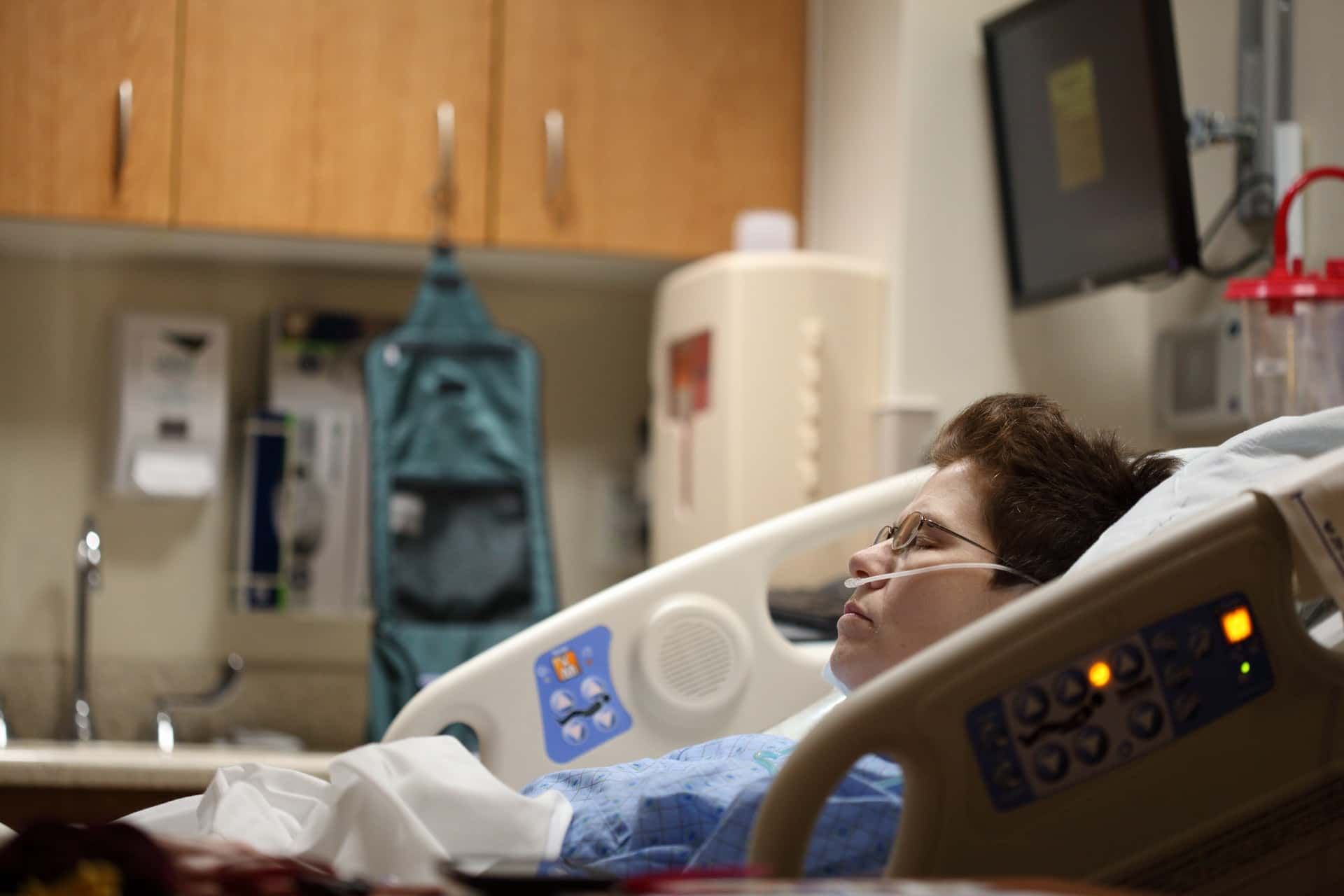 Unsplash
Unsplash
29. What Lies Beneath
My mom had to get one of her kidneys taken out because she ignored back pain for nearly two years. By the time she finally went to the doctor, they found a massive kidney stone and a severe infection in her kidney. It was full of pus and basically shut down. They had to drain the fluid through tubes before she could have the surgery.
Fast forward to last Wednesday, her surgery day. She was eager to get it behind her. The insertion of the tubes was easy, then it was time to remove the kidney. That's when the seriously worrying moment hit. They were about to take out the kidney when they discovered that the infection had spread to part of her lung and a major artery, which were as delicate as tissue paper.
During the kidney removal, the surgeon accidentally punctured her lung and, even worse, cut through the artery. They had to work urgently to keep her alive and stabilise her. I don't recall all the details of how they managed to fix her up, but they had to airlift her to another hospital where a cardiac surgeon could repair the severed artery in a more durable manner.
In any case, the cardiac surgeon assessed the critical situation and estimated her survival chances may only be 1%. However, thanks to his exceptional skills, my mom is making progress each day. If there's a lesson to take away from this, it's if you have insurance and you're feeling pain, don't hesitate to see a doctor.
You might save your life and avoid putting doctors in scary situations like this.
 Pexels
Pexels
30. Gaming The System
As an ER nurse, once had a woman come in with straightforward pneumonia. Her 13-year-old son was starting to get restless, so I decided to entertain him by demonstrating some medical gear. For a bit of fun, I hooked him up to a basic heart monitor. The sight on the screen turned my face pale—I realized he was experiencing a total heart block.
I quickly took a printout and rushed it to the doctor. Well, that was unexpected—we suddenly had a heart patient on our hands.
31. Eye Of The Tiger
As an optometrist, I remember one patient who came for an early check-up, months ahead of her yearly appointment. She said she was simply planning to get new glasses and needed an update on her eye health. We figured we'd run the usual tests since she was already there.
She was a woman in her 50s, with nothing unusual about her exam: good vision, healthy retinas. But her pupils felt not quite right to me, prompting me to ask if she'd had any recent head injuries. She said no, but suddenly disclosed a part of her medical history she'd been hiding.
A few years back, she had a meningioma (a kind of brain tumor) surgically removed. She'd chosen not to mention this to us because she didn't see its relevance. We noted it in her records nonetheless. Two weeks before her visit, she'd had a CT scan that she said had come back entirely normal. But I suggested she tell her doctor about her pupils anyway, just to be on the safe side.
Fast-forward a few months and she returned to my office, excited to tell me that my examination had identified that her tumor was back, and with a vengeance. She had no symptoms, and the CT scan before her visit with me only revealed a tiny speck that was dismissed as an "artifact".
But when she revisited her doctor, they decided to run another CT scan, just to be sure. They found a tumor the size of a quarter. The tumor had grown from a dust grain size to a quarter size in just two weeks. Due to the rapid growth and its proximity to a blood vessel, it posed a critical stroke risk, so she went through an emergency surgery to remove it that day.
She returned back to me post-recovery to share this. She's now a regular patient whom I've been seeing for roughly a decade.
32. Wrong Self-Diagnosis
We came across a medical story about a guy who noticed a rash on his foot. Searching the web, he figured it was probably eczema or a similar skin condition, so he got some steroid cream and started to use it. If you're not sure, steroids like this work by calming down the immune system, which is usually overactive in cases of eczema and psoriasis.
However, it turned out he actually had a fungal infection and was unknowingly weakening his body's defense against it. By the time he got to the doctor, if I recall right, amputation became necessary.
 Unsplash
Unsplash
33. Nightmare Fuel
I had a harrowing experience when I had my wisdom teeth pulled. They were all impacted, requiring serious dental equipment. I was put under anesthesia, not even knowing when my dentist walked in.
After a while, I came to, yet I couldn't move a muscle. With my eyes wide open, it was almost like my body was paralyzed. I could feel the dentist using a chisel to crack my teeth for removal. Each hit felt as if it was dislocating my jaw. My mouth stretched wide open, held in place by some wicked-looking metal apparatus.
With desperation, I tried to communicate with the dental assistant through my eyes, willing her to notice me. After numerous blows to my jaw, she finally caught my silent plead. Startled, she dropped the suction tool, jumped up and screamed. The dentist turned, noticed me, and uttered a mild exclamation.
The next thing I remember, I was coming around after the surgery. The experience was a real-life horror story.
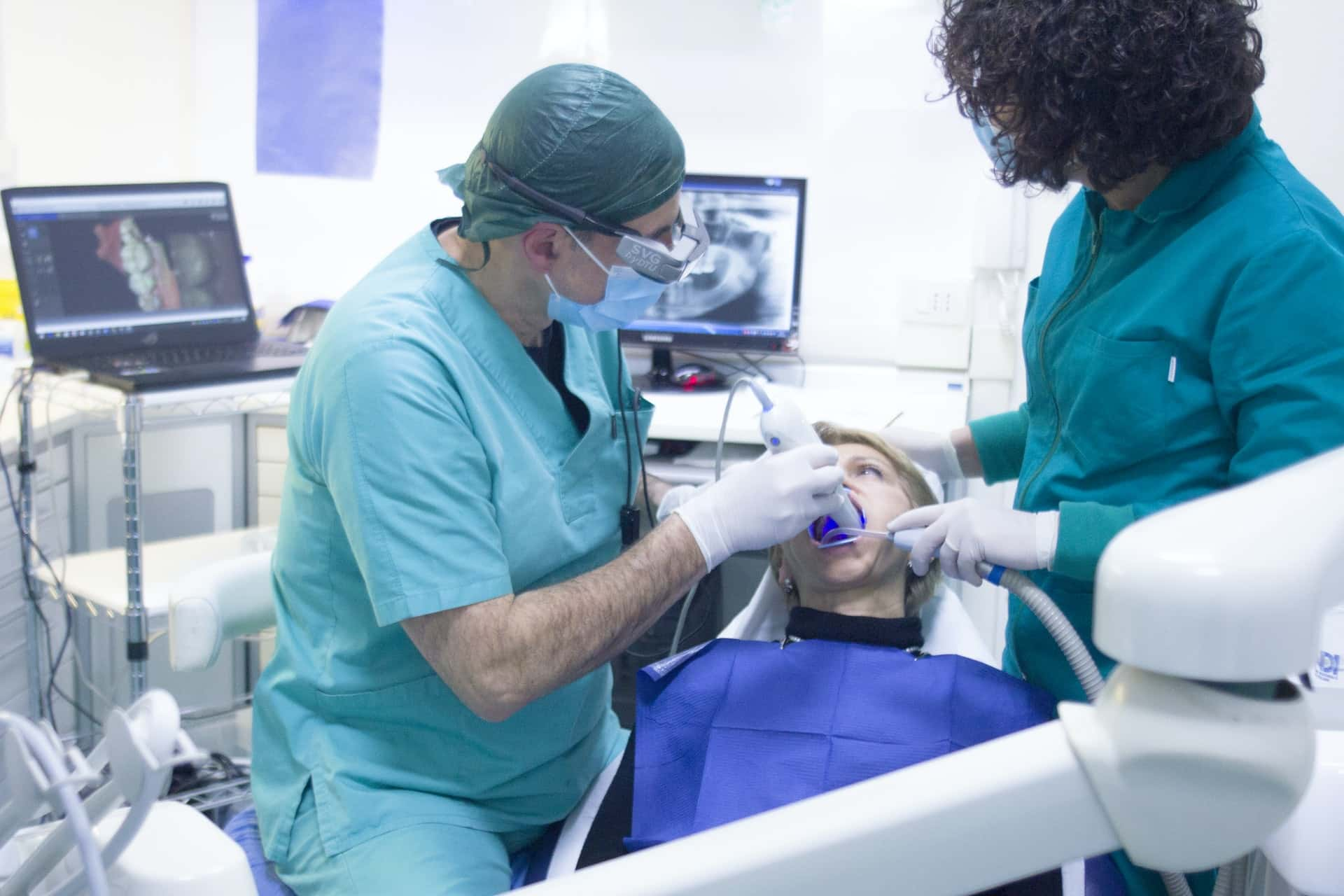 Unplash
Unplash
34. Where’s The Horsehoe?
When I was a medical student during my surgical training, I was on duty with the trauma unit. I was observing a straightforward repair operation when my trauma pager beeped urgently. Dashing into the trauma area, a young man was brought in, his lower body coated in blood, yet surprisingly, he was conscious and alert.
He was in severe pain and had 15 wounds, exclusively below the waistline, with one bullet having pierced a very sensitive area. While assessing him, an emergency alert—a code—is announced from the neighboring unit. We find out it pertains to the companion of our current patient.
A few of us immediately attend to the situation and find a woman on a stretcher undergoing CPR. We swiftly turn her to her side to remove her clothes and notice she's bleeding from her back. We locate a tiny exit wound and piece together that it comes from a stray bullet from our initial patient.
Swiftly, we wheel her into the trauma bay to perform immediate surgery. She’s not breathing and lacks a pulse. We proceed to intubate her and identify an entrance point centrally on her chest. An ultrasound confirms a hemothorax and we manage to secure a chest tube. Instantly, blood starts to pool intensely onto the floor.
The resident beside me swiftly performs an incision, then halves the sternum with a clip. We can now fully visualize the woman's heart, and the neat entry and exit wounds. All the blood and fluids we were infusing were merely exiting right out of her heart into her chest cavity.
We rush her towards an Operating Room when I realize she's bleeding from every single bodily orifice. Her body had depleted all its clotting factors. Although the blood was flowing continuously, she was in no state for surgery. We move her to intensive care instead and watch over her for three weeks.
She can't communicate or move, and her family is discussing life support options. I later find out she was discharged as a quadriplegic and the prognosis is grim. However, an unexpected turn of events occur six months later while I'm on shift in intensive care.
As I discuss this patient with my superior, they vividly remember the case and inform me that the woman had walked in for a follow-up appointment a month prior. The only reminiscence of her harrowing ordeal is a scar from her thoracotomy.
35. The Girl On The Grill
During my first year as a medical intern, I was looking after a 34-year-old woman. She'd spent a weekend tending a grill at her church's festival. The grill smoke irritated her eyes, so she used a friend's eye drops for relief. However, after two days she broke out in a rash, which quickly spread all over her body.
This then escalated into a condition called Toxic Epidermal Necrolysis Syndrome. Basically, the top layer of her skin began to separate from the underlying layers, leaving wounds similar to what you'd see beneath a large blister. In her situation, this affected three quarters of her body.
She was also battling infections in her mouth, esophagus, stomach, and intestines. Our treatment involved daily changes of silver-infused bandages, with her body fully wrapped like a mummy. Despite our best efforts at a leading burn unit in a major city hospital, her body just couldn't cope.
Meanwhile, her friend was drowning in guilt. All this, because of some eye drops.
36. Baby Face
This is a story that involved my wife and me. She was pregnant, three months along, and had an ultrasound done. It all checked out—our baby had a healthy heart rate of 99. But due to some oversight on the technician's part, something wasn't measured and another ultrasound was scheduled.
The next appointment was around a month later as my wife preferred to push it back. She really had a hard time with the preparation required for these scans, drinking a lot of fluids and holding it in to get clear imagery. I couldn't accompany her to the second ultrasound and over the phone, she broke some heart-wrenching news to me.
The doctor had advised her it was necessary to end the pregnancy for her own well-being. She wanted me to know what was happening before she went through with it. The baby’s heart rate was reported as unchanged since the first ultrasound, supposedly, a concern big enough to put my wife at risk.
I immediately rushed to the hospital. How exactly I got there is a blur, but I cut through heavy traffic and made a 20-minute drive only in ten. I abandoned my car at the curb, ran up to her room, and was relieved to find that nothing had happened yet. I set my foot down, insisting on yet another ultrasound.
I was convinced that there'd been an error; the identical heart rates from the first and second ultrasounds seemed too coincidental. I had this gut feeling that the tech had copied over the first report's numbers and forgot to update them. I stayed firm, voicing strong objections to anyone even trying to approach my wife.
It almost escalated to the point where security might've been involved until a different doctor stepped in and ordered another ultrasound. The subsequent scan confirmed that our baby's heart rate was perfectly normal. Our son is now ten years old, but I see reflections of that fear and panic in his face every day.
37. One Exam Is All It Took
Ever since I was 14, I'd been struggling with intense pain, especially around my period. It would ease off a bit after, but I was told this was just par for the course. When I hit 18, the pain got worse, so I started looking for answers. Over six years, I met with seven different doctors, but they just brushed it off as normal period pains.
One even tried to convince me that it was irritable bladder syndrome. I wasn't a med student, but I had enough common sense to know that didn't add up. I tried several types of birth control and pain meds, but none of them worked. It wasn't until I was 23 that I finally met with an OB-GYN who specializes in pelvic pain.
She barely had to examine me before declaring, "Oh my! You have endometriosis". She quickly scheduled me for my first laparoscopic surgery in January. In that surgery, they found that not only did I have a severe, uncommon form of endometriosis with complications, but I also had several golf-ball-sized cysts ready to burst.
She remarked on my high pain tolerance, saying it was impressive that I could even walk into her office considering everything they discovered and removed. What really struck me was that before meeting this specialist, I had three ultrasounds and multiple exams.
Yet, none of them picked up on or even considered endometriosis or PCOS. It was just that simple pelvic exam that ended up saving my life.
38. A Comedy Of Errors
When I was younger, my dad shared a peculiar story with me. He was treating a 21-year old patient who had to undergo a penectomy due to cancer. Two unexpected incidents occurred during this operation. The first, kind of typical: the patient was not fully anesthetized. The second one was both amusing and embarrassing.
As they were gearing up to perform the surgery, one of the attending nurses suddenly vomited and walked out. Later, they found out she was pregnant! Getting back to the operation, midway through, the remaining nurse had to step away because of an emergency call about her dad.
So there my dad was, standing alone with the patient on the table. He called for help, yet it took a solid 30 minutes for someone else to arrive and lend him a hand. What a day for him.
 Unsplash
Unsplash
39. You Had One Job
We were performing surgery on a patient's carotid artery. In the middle of the operation, there was a large opening in his neck, and out of nowhere, the patient woke up. "No big deal," I told myself, and I urgently called for the anesthesiologist to put him back to sleep... except he had stepped out for a moment.
I had to steady the patient's head with my elbow to prevent him from moving too much and injuring himself until the anesthesiologist returned.
40. Elastic Heart
A man arrived in our ER with intense chest pain, causing him to frequently faint—sometimes daily. He figured it was because he was overweight. We had to tell him fainting was not commonplace and he should've informed his doctor. His issue was intermittent, so initially, we couldn't determine the problem as his vital signs were fine.
When the medications we provided didn't work, we transferred him to the hospital. His heartbeat was extremely high for a prolonged time (about 45 to 60 minutes), leading to fainting spells due to oxygen deprivation. It turns out he was having mild heart attacks without recognizing their severity—but that wasn't even the worst part.
This had been happening to him since his adolescence, potentially even earlier, and his parents never thought to consult a doctor about it.
41. Off To A Bad Start
One of my sister's pals got a cancer diagnosis when she was just 10 years old. The doctors told them to pack their bags and move cross-country, close to a specialist, with a plan to live there for at least a year.
They even booked a private flight to avoid her catching something from sick passengers on a regular flight. But before they took off, they sought a second opinion which showed it was just pneumonia.
They opted to get a third doctor's opinion to finally clear up the confusion. And, they confirmed the same—it was indeed pneumonia, not cancer. Now, years down the line, she's totally healthy and full of life. She's never undergone any cancer treatments and continues to go for regular cancer check-ups.
42. Going Out Of My Head
I visited my family doctor because of the most severe headache I'd ever experienced. She told me it was nothing but a tension headache and suggested I take a Tylenol and rest in a quiet, dim place. Over the next few weeks, I had to see her 13 times because my symptoms were getting worse.
Initially, it was just dizziness, then vomiting followed, ultimately leading to loss of vision in my right eye. Each time I saw her, she said it was merely a tension headache or an unusual migraine. The only thing she'd do was prescribe me pain relievers and send me off. The breaking point happened when I struggled to walk normally.
I could only shuffle awkwardly instead of taking normal steps. At this stage, she at long last, though grudgingly, agreed to refer me to a neurologist. The following day, I found myself in the neurologist's office and was there for less than a minute. He looked into my eyes once and immediately rang for an ambulance.
As it turned out, I was suffering from hydrocephalus. My brain ventricles were five times their standard size, and my brain was literally getting compressed out of my skull. What a surprise.
43. Painless Yet Severe
When I was 14, I woke up in the night with a stomach ache that felt a bit stronger than usual, but I managed to sleep through most of it. The following day, my parents arranged a doctor's visit just to make sure everything was fine. There were delays during that appointment that made it longer than expected.
At some point, I suggested to my mom that we should head home because it was probably nothing serious. But then, shockingly, it turned out that I needed an operation. Before the surgery, the doctor told me my appendix had ruptured. He was amazed that I was able to sleep despite the pain, remarking on my high pain threshold.
He went on to say that it was a close call—if the surgery hadn't happened as soon as it did, things could've been much worse. This experience made me realize that having a high tolerance for pain isn't always beneficial.
 Pexels
Pexels
44. Puff-Puff-Pass-Out
One time, I treated a woman in her middle years, who had never had any major health issues before, that needed urgent care from another state. Her main problem was a bleed inside her brain.
What truly made her case unique was that, according to her family, she had just tried the green stuff for the first time, taking a massive puff and coughing so severely that she caused a blood vessel in her brain to burst.
She pulled through the surgery, but during her recovery, her heart suddenly stopped, causing her to go into cardiac arrest. I was part of the emergency response team that rushed to resuscitate her.
Using quick, professional methods, including intubation and chest compressions, we managed to restart her heart. But just as I was going over the details of my other patients outside her room, she went into cardiac arrest a second time!
We all had to race across the hospital again to handle the situation. I’ve never seen our emergency team this winded. On one single night, she was airlifted in, had a burst aneurysm, suffered a hemorrhagic stroke, went through two back-to-back cardiac arrests, and amazingly survived.
She proved to be a true fighter, yet I hope her family firmly grasps that some things shouldn't be done, next time around.
45. What’s Hip With The Kids
My grandma had a hip replacement, but she constantly felt pain in it. She was patient and waited a whole year, hoping the ache would subside, but it never did. She sought advice from numerous doctors and even got several X-rays, but they all assured her that her replaced hip was doing just fine. Eventually, we persuaded her to visit a private clinic back in our hometown.
At the clinic, the attending physician confirmed the prior doctors' assessment that the actual replacement hip was indeed in tip-top shape. However, he noticed that the bone surrounding it told a completely different tale—it seemed as though bacteria had somewhat damaged it.
This new doctor performed surgery to address the issue, and it was shocking to see the significant amount of pus in her leg. Had my grandmother delayed the procedure any longer, there's a chance she could have suffered a life-threatening blood infection. Looking back, I don't think there's ever been a more urgent need for a second opinion.
I'm indescribably grateful she went to the clinic when she did.
46. Please, I In-Cyst
My wife had to visit the ER due to some discomfort in her lower abdomen. They found a lump via ultrasound, suggesting it was likely an ovarian cyst and reassured us it would resolve itself over time. About a week later, she saw her primary physician and ended up needing surgery to remove it.
After examining the lump, it turned out to be ovarian cancer. Fortunately, she's now cancer-free. But can you believe it?
47. The Family Jewels
My teen son, who's 13, told me he was horribly itchy in his private area. I assumed it was probably sweat related, so I advised him to clean the area well and get it dry. A few days later, though, he claimed it was still itchy and now even swelling up. Swelling?
He didn't report any pain—just the itching and swelling. I thought maybe he had nothing more than a common sweat rash that might need some cream. But when we consulted a doctor, we were directed to get an ultrasound. The scan revealed no blood was flowing to the affected part, so they quickly transferred him to the ER.
They had to perform emergency surgery, during which the urologist removed a decaying mass. It had mysteriously twisted and passed about a week ago. The swelling, it turned out, indicated a serious infection, which also accounted for the itchiness.
Strangely, at no point did he feel any pain, which the doctor deemed remarkable. Typically, with a condition called torsion, most boys experience a sensation similar to being hit down "there" repeatedly. Given the infection level he had reached, he should've been crying out in agony.
Had we delayed any further, he could have potentially developed sepsis. He underwent a second surgery a month later, where they installed a prosthetic part and secured his remaining one to prevent reoccurrence.
48. A Little Too Late
I'm a seasoned nurse with two decades in the field and a master's qualification. One patient, a woman with a persistent, sizable wound on her left chest that had persisted for half a year, and tender underarm lumps that she'd had for six years prior, was quite tragic.
Any wound that doesn't heal is generally suspected to be cancer until tests indicate otherwise. Unfortunately, the woman had stage four cancer which was untreatable—the reason why was simply heartbreaking.
She didn't understand that cancer could be treatable. She shared with us, "I wish there were options for this kind of cancer, and for all types of cancer". Clearly, she was uninformed about the fact that women with tender lumps should seek medical attention immediately—early detection can make cancer much more manageable.
She passed just three weeks post-diagnosis. She was heavily sedated for the last two weeks and five days after her diagnosis; that was her preference. While it was sad, it was some comfort to know she wasn't suffering—she slept through most of it.
49. Not Quite A Baby...
I'm a nurse by profession. Once, we had a 67-year-old lady who mistakenly believed she was expecting. Honestly, with her distended abdomen, she did resemble a pregnant woman in her late-term. However, the catch was her age.
Upon investigation, it was found to be a massive 37-pound ovarian cyst, which was by far the largest I'd encountered in my career. I obtained permission to observe the surgery. The cyst was surgically removed in one intact piece, a spectacle complete with unforgettable sounds.
Back then, the hospital rules were less stringent than those enforced by HIPAA today, so the lab extended an open invitation for anyone interested to come and take a look at this peculiar specimen before it was sent off for further pathological examination.
The turnout was extraordinary, with a queue at the lab that could easily be mistaken for fans lining up for free concert tickets.
50. A Life Spared
My psychiatrist is truly a lifesaver! I tend to get really heavy and irregular monthly cycles. But, once I had bleeding for a whole month, I barely questioned it. After seeing a doctor, I ended up in the emergency department due to the constant blood loss, and I was simply told, "You've got endometriosis".
For five months, I endured this heavy cycle while doctors just brushed it off. Eventually, after I fainted in the shower, my roommate dialed for an ambulance. Doctors conducted a blood test and I needed to stay overnight for a blood transfusion. Incidentally, I discovered that blood transfusions can make some folks nauseous—not exactly enjoyable!
To top it all off, I'm allergic to anti-nausea medicine. A couple weeks later, around the six-month mark, I drove for an hour to meet with my psychiatrist. Immediately, he realized something was seriously wrong with me. He ordered me to go straight to the ER.
I followed his advice and was swiftly taken to the ICU with a serious case of bilateral pulmonary embolism, a condition caused by large blood clots in both lungs. I was on the brink of literal suffocation. Behind the scenes, the birth control given by doctors was causing these massive clots.
The awesome doctor attending to me was astute enough to link the dots. Not only did he save my life, but he also took the time to author a paper on the vital errors doctors make when dismissing the concerns of a healthy, young woman in her mid-20s with major menstrual issues, just like me.
 Pexels
Pexels
51. Close But Not Quite
When I was studying medicine, everyone had a "Yikes!" moment. Once, they were getting a patient ready for surgery and, after administering the anesthesia, the nurse announced "Alright, he's knocked out" just as they were preparing to start the operation. The patient managed to shake his head and murmur, "Nope, not asleep yet".
Everybody chuckled about it, but had the patient not spoken up, things could have turned serious.
52. Evil From Within
Once, a woman arrived at the emergency room bleeding heavily, three weeks post-childbirth. It's quite uncommon for this to happen at that time, so she was put under my care for a surgical procedure known as dilation and curettage, or D&C for short.
I honestly thought I'd discover a small piece of leftover placenta and that removing it would instantly stop the bleeding. However, the reality was far from what I had anticipated.
The moment we began the surgery, her condition deteriorated. Eventually, I had to use a uterine tamponde balloon. This is a large balloon filled with saline, inserted inside the uterus to maintain pressure. With some medication, we successfully managed to halt the bleeding.
She improved following a blood transfusion. She lost an alarming 3,000cc of blood in total, in the emergency room and during surgery. Her test results didn't reflect any leftover placenta, in essence, her uterus decided to turn against her that night. It's a remarkably rare occurrence and I haven't encountered it since.
A few weeks later, she expressed her gratitude by sending me a handwritten note saying, "Thanks for saving my life, I guess". I pinned the note in my locker and continued wishing her well in her future post-uterine escapades!
53. Just Bumming Around
Our patient battled a troublesome pilonidal cyst for years. This type of cyst grows at the very bottom of your back and results from hairs digging into the skin. It would flare up, and get inflamed and infected, whenever the patient sat down for long durations. Normally, we'd suggest surgery in such cases.
Upon examination, we noticed the cyst had burst open naturally and started to drain. Further examination revealed a cluster of hair within the rupture, and I felt compelled to remove it. But, I miscalculated. I didn’t anticipate the hair acting like a plug and removing it triggered the release of an incredibly stinky pus.
Fortunately, due to safety procedures, I wore a face shield, but the foul fluid managed to hit my nose and eyebrow. I won’t forget the intensity, the trajectory or that unforgettable smell, and yet, I'd do it again without hesitation. Blame my fascination on watching one too many episodes of Dr Pimple Popper.
Nonetheless, I was taken aback by the outcome.
54. The Circle Of Life
My brother works as a paramedic and has often shared stories about how emergency calls are sometimes understated. Once, he received a dispatch for a young girl with what they called "minor bleeding".
He prepared himself for a severe wound, but when he arrived at the scene, he discovered a panicked 14-year-old brother and his 12-year-old sister who was bleeding profusely. It quickly became apparent that the girl was not injured, but terrified because she was experiencing her period for the first time.
She was in the bathtub, scared out of her wits thinking she was dying. He helped her calm down and then asked them to call their mother, who was at work. Once their mom was on the phone, she took on the task of explaining to her young daughter what was happening.
When the phone was then handed back to my brother, the girl asked whether ambulances carried menstrual pads. They don't, but my brother had improvised and made a makeshift pad out of gauze, giving her instructions on how to use it. Twenty minutes later, the girl's mother arrived, relieved and grateful.
She thanked my brother over and over again, and then held her daughter tight for a while. It was a day my brother hadn't anticipated—explaining menstrual cycles unexpectedly becoming part of his job.
55. In The Blink Of An Eye
This person had battled kidney cancer before and was thought to be in remission. But a recent scan revealed shocking news—there's a distinct lump on one kidney. However, if it's just a localized growth, we can remove the tip of his kidney and not only cure him but also preserve most of his kidney function.
The main surgeon asked for more detailed images, so we sent him to radiology. When radiology gave us the analysis, it was the worst news we could get. The cancer had returned and had invaded the kidney's veins. This advanced the patient's status from remission to stage three of the disease.
The radiologist also reported signs of abnormalities in the liver and brain. Once everyone absorbed the news, it became clear that the patient's condition had worsened and surgery was no longer a viable option. The hardest part was breaking the news to him.
Remember, this patient thought he was coming in for a quick procedure and would leave fully healed. Instead, the surgeon had to say, "I’m sorry, but your cancer has spread, and you probably have around six months to live". His son, five years younger than me, stood next to his dad when he heard the news.
56. Tainted Smile
I'm employed at a dentist's office. One day, a worried patient came in for a check-up, believing a piece of her tooth had broken off. But upon closer look, it wasn't a chip as she thought; it was actually calculus, a hard deposit that forms over your teeth when they're not brushed regularly.
These deposits can be small, or, like in this situation, large enough to create a sort of "bridge" hiding her actual teeth. She was pretty surprised to find out that what she thought was part of her tooth was calculus, and even more surprised that we couldn't see her real teeth because of it. We performed a thorough cleaning to get rid of all the tartar.
57. Small Cut, Big Consequences
I was the one on the operation table. I'd undergone a liver transplant and was due for a surgery to have a new bile duct stent put in. Turns out, my body's built a little differently, with my lungs extending further down my sides than usual.
During the operation, the doctor accidentally made a small cut. The effects were overwhelming. When I came to, breathing was a struggle. They took an X-ray and had to insert a chest tube. Surprisingly, the doctor was so distressed by the incident that he ended up shedding tears.
It wasn't an act of ill will or carelessness, but rather an unfortunate accident.
58. What A Wonderful World
As a psychiatrist, I'm the one who unfortunately misdiagnosed this case. I had a 30-year-old male patient, experiencing mild depression, who was frequently visiting and leaving the hospital. He was feeling stressed due to his living arrangements; he had four roommates that were creating some troubles for him.
Although it wasn't a situation to worry about life-threatening thoughts, it was problematic nonetheless. I, along with two other doctors, didn't find any serious mental illnesses. However, a few months later, he was back. His symptoms remained the same, but he mentioned having five roommates this time.
Something didn't feel right about it, making me probe into his story. What I discovered shook me—the patient, in reality, was living alone and suffering from severe psychosis. I'm still baffled at how well he managed to hide this from everyone. To add more, despite his mental health condition, he was able to talk, dress, and behave normally outwardly.
After letting him stay for a while, we realized that he spoke frequently with his "roommates". Despite being single, having no family contact, and having some form of employment, his job wasn't a social one. In casual conversations, he explained that he occasionally felt others' thoughts were "projected onto him," which, against his will, gave him insight into their minds.
What stood out about this patient was how his personal reality seamlessly blended with the reality around him. His "roommates" came across as fairly ordinary individuals. They weren't characterized as eerie "shadow people," Vikings, or towering giants.
His one gripe was that they enjoyed playing pranks on him by concealing his belongings, but aside from that, they engaged in regular activities like dining and watching TV together. Typically, someone with paranoid schizophrenia (paranoid referring to various types of delusions) will showcase several symptoms, some of which are noticeable even to the untrained eye.
These patients may have unique ways of dressing, communicating, and presenting themselves, often deviating from cultural norms. Their speech may be disjointed, they might create new words or phrases, and they may detach themselves from reality.
For instance, I once had a patient who was convinced that I was behind bars while I was treating him. In layman's terms, when we swiftly check for signs of psychosis, we're essentially looking for any disparities in the patient's understanding of the world. Usually, these patients recognize that "something's off" or "strange" or "unusual," but they mostly think the world around them is what has shifted.
This misunderstanding stems from the conflict between their experiences, a flawed interpretation of their thoughts (because of the thought disorder) and the various conclusions they come to based on those flawed interpretations, which then clash with reality.
This conflict triggers certain coping mechanisms like denial, fanciful explanations, embracing two "realities" simultaneously, and so on.
Consider a patient who thinks: "I can't be sick, so if my doctor says I am, he must be wrong. And if he's wrong, he's a bad person. But bad people belong behind bars, so my doctor must be an inmate. Yet my doctor is right here in front of me, so either he has a twin or this is another reality altogether".
That's the messy logic that typically forms delusions. To sum it up: our search for psychosis involves matching a patient's own thought, behavioral, and experiential patterns against the accepted standards of reality in our society. In this case, this patient was able to create a deluded world that lined up so convincingly with reality, he managed to fool several psychiatrists.
59. You Never Know What You’re Gonna Get
One day, I got summoned to a lengthy, six-hour heart operation to confirm that the laparoscopic camera was operating and capable of recording. The procedure was almost finished, so I was certain I was in for a show—they were planning to document something significant. Out of the blue, the surgeon extracts some sort of mass from this guy's heart.
This mass was as big as a chicken wing. It had been expanding through his valve, and quite frankly, I'm stunned that the patient was still alive. Apparently, the sole sign was breathlessness.
60. It’s Getting Hot In Here
I was working in the maternity ward during a heatwave. This is worth mentioning because maternity sections are typically kept quite warm—newborn babies can't control their temperatures easily. In the middle of an emergency c-section, the scrub nurse who was assisting the procedure started to feel woozy.
This was odd, given that she worked full-time in these operating rooms, so this was her day-to-day work. The only reason I can think of was the intense heat. In any case, she had no choice but to step out, and a much less experienced nurse had to fill in—it was their first time assisting in this sort of operation.
They were attempting to help with the instruments inside the uterus when they fainted. I had to quickly grab the back of their gown to prevent them from landing face-first into the open uterus, then gingerly pull backwards to let them fall into me while someone else took over. I'm just thankful the baby was already born.
61. A Man With A Vision
A man came to see me for a second opinion because his previous doctor didn't take the time to ask about his medical history. Naturally, I asked about his past health and posed additional questions as we talked. I recall feeling that something wasn't quite right and decided we needed to conduct a test.
So, I requested a peripheral vision exam. When I received the results, I was stunned—it showed the most textbook tumor pattern I had ever encountered. Fast forward two weeks, he underwent surgery to remove the tumor. One month later, he returned to my clinic to express his gratitude.
He was transformed, full of energy and happiness like never before.
62. How Incompetent
I had all the signs of a gut bleed, including throwing up blood that looked like coffee grounds. I rushed to the emergency, had a nose-to-stomach tube inserted, and spent the night in intensive care. The next day, they scoped me and found I had three minor erosions, then discharged me with a prescription for antacids.
I thought I was set to recover, but those next two weeks felt horrible. I was constantly exhausted, weak, and often dizzy, but I shrugged it off thinking it was due to the "small erosions". Two weeks later, my doctor asked for a blood test.
The test shown my hemoglobin levels at 4.6 and my hematocrit at 15.1, which was dangerously low...to the point of "how are you still on your feet" low. To cut a long story short, another scope in a different hospital revealed a two-inch tumor in my stomach.
Oddly, this tumor is very rare in people under 40 and I'm only 33. In the following days, I had to have, in total, five tumors and half of my stomach surgically removed. The mystery is that the initial doctor found the "erosions" roughly in the same location as my two-inch tumor.
I'm baffled how he missed it. But he came, he found what he wanted—the erosions—so mission accomplished, I guess. What I do know for sure is, I won't be shelling out the $7,200 bill the hospital is demanding. Their oversight of a two-inch mass is mind-boggling. Now, I'm anxiously waiting for the bill for the week stay and surgery at the second hospital.
63. You Mad, Bro?
I once met with a patient for therapy who'd previously been harshly told off by his doctor for allegedly being a hypochondriac. This doctor insisted all his symptoms were just a figment of his imagination and accused him of simply seeking disability. Given his symptoms seemed clearly neurological, I recommended an MRI.
To my surprise, he'd only ever had X-rays before. Unfortunately, I ended up diagnosing the 19-year-old man with multiple sclerosis. The bright side was, I felt a good deal of satisfaction when informing that doctor about his massive error. I also made sure to mention I'd be discussing this oversight with our shared head of clinical services.
64. The New Normal
A 22-year-old lad came to see me after consulting with his regular doctor at a different healthcare center. His mother, a patient of mine, requested if I could also check on him, considering my expertise in internal medicine. The young man had informed his previous doctor about a headache.
Since he was new to me, I conducted a comprehensive review of symptoms. During this process, he let us know that he discovered a lump on his left testicle. Upon examination, his claim proved true. Almost instantly, I had a feeling that it was most likely metastatic testicular cancer.
This suspicion was later verified through a brain scan and an ultrasound. I inquired if he had informed his previous doctor about the lump, to which he responded affirmatively. Strangely enough, his former doctor had dismissed the lump, labeling it as normal.
65. A Medical Mystery
Here's a medical mystery that's always puzzled me: A healthy 23-year-old man walked into the emergency room one day due to chest pain he experienced after eating something spicy. We monitored his vitals and ran an X-ray. Just as we were about to send him home, he suddenly collapsed and lost all signs of life.
We immediately started CPR and managed to get his heart beating again. He was stable enough for a CT scan, but sadly, he didn't make it through the test. The medical team was completely stumped. The autopsy showed that his major blood vessels had basically collapsed.
While this kind of thing occasionally happens to older men in their 70s who have a history of lighting up and high blood pressure, this patient had no risk factors whatsoever and didn't smoke. It's been a few years since then, but that case still sticks in my head.
66. Seeing Double
Back in high school, I had a doctor who didn't pay much attention when I started seeing everything double, in a vertical way. This scared the heck out of everyone in the emergency room. On top of that, I mysteriously lost 60 pounds without trying.
A year or two after, I mentioned to him that my arm would go numb quicker than usual when I raised it to ask a question in class. Only then, he began to suspect something might not be right with me. He sent me for an MRI. Turns out, there was a massive brain tumor inside my skull.
67. Fix One Problem, Find Another
My sister had to undergo stomach surgery, during which the surgeon noted something unusual about her uterus.
They suggested it could be an ovarian cyst and recommended further examination. Once she was fully recovered from the stomach procedure, she had her uterus checked and was diagnosed with uterine leiomyosarcoma. Basically, her entire uterus was a large tumor.
The tumor affected not only her uterus but also her ovaries and fallopian tubes. She underwent another surgery to get rid of it entirely, followed by a five-month course of chemotherapy. After a half year of receiving clear scan reports, she went for a mammogram only to discover breast cancer.
She decided to undergo a mastectomy last week and is about to start radiation therapy soon. This has been a really tough and painful journey.
68. And Just Like That...
While helping my dad get out of bed, we both heard a loud snap. It wasn't out of the ordinary and dad figured he had just strained something. But when the pain lasted for weeks, I knew we had to do something. I brought him to our local doctor, who then suggested we go for a hospital scan.
As it turns out, that snapping noise was his rib bone—which was basically dust—coming apart. The cause was heartbreaking. Due to some bad habits he had in his youth, he was diagnosed with lung cancer. The disease had spread from his lung into his ribs and spine.
After that, dad went into end-of-life care. I ensured that he had a chance to say goodbye to his beloved cat, Tilly. I brought her to the hospital, and she curled up on his chest, snuggled her back end near his face—one final, loving memory.
69. When It Rains, It Pours
When my grandpa was in his 70s, he was preparing for double knee replacement surgery. They run numerous health checks to ensure your body can handle the strain of the operation, and during one such check, the heart doctor discovered an aneurysm in my granddad's aorta. But that wasn't the biggest shock.
The aneurysm stretched nearly the full length of his torso. The medical team was astounded that he was still living with this condition. As a result, he first had to undergo an operation to insert a stent into his aorta. A few months later, he got the all-clear for his knee replacements.
70. A Clot Unlike Any Other
My dad had to go to the hospital because he was having chest pains, and they decided to do this test called an angiogram. In this test, they put dye in his heart's valves to check for blood clots. While they were doing it, the surgeon asked if dad ever had blackouts, and then they brought in more doctors to take a look at him.
My dad's not much for talking, but he did say he had a bit of daily pain. Next thing we know, they're moving him to a different kind of X-ray machine, and they're all looking puzzled but not telling us why. Turns out, they found a blood clot in his heart about the size of a golf ball, just moving around in there.
Most people would've passed quickly from something like that, and it really got the doctors' attention. But, dad's a tough guy—he's had a triple bypass operation 30 years back and he's still the strong, quiet type.
71. Did I Do That?
Once, I observed a med student accidentally vacuum up a skin graft with a medical suction tool. The skin graft, a delicate slice of tissue, was being meticulously placed on a wound to be stitched on like a patch. This med student intended to use the suction to clean the wound area but unintentionally it vacuumed the painstakingly prepared graft completely, vanishing in an instant.
72. A Mumbling Clue
During my final year of residency, my initial assignment was in the radiology department of the hospital. While with a patient following their ultrasound, they mentioned being thirsty. After taking a gulp of water, they began to mumble unusually.
We couldn't understand, but the patient's daughter explained he sometimes spoke like that, and something didn't seem right. She couldn't have been more correct. Suddenly, he went quiet and just blankly stared into the distance, leaving me puzzled about what was happening.
Upon examination, one of the senior doctors called for our resident and instantly started performing CPR. Unfortunately, despite moving him swiftly to the ER, he passed later that day. I've tended to numerous patients since then, but I can't shake off memories of that day.
73. Gone In 60 Seconds
I'm a stomach and intestine specialist, and I once had to remove a pretty large lump during a colon inspection. Snipping the lump off took longer than expected, and when it finally came off, it started bleeding uncontrollably and quickly clouded the screen with blood—I couldn't see a thing.
The patient's blood pressure began to decrease. The man, with his normally dark, Middle Eastern complexion, suddenly turned an alarming pale shade and lay before me on the stretcher. I felt a knot in my stomach, like I might pass out or get sick. I just thought, "Oh no". I took a second to breathe and regain my composure.
When I snapped back to focus, I knew what to do. We juiced him up with fluids to boost his declining blood pressure and we got him situated in a safe way to ensure his brain, lungs, and heart got adequate blood, while limiting the blood flow to his stomach where the bleeding was.
I then sprayed water to dilute the blood. By doing this, I hoped to get a better image on my screen and finally stop the bleeding. Fortunately, his blood pressure dropped just enough to naturally stop the bleeding. That gave me just enough time to find the specific blood vessel and clamp it off.
In less than a minute, he had lost about one-third of his total blood. He was admitted, given a transfusion, and was able to go home the next day. Nowadays, if I foresee a similar situation, I refer the person for surgery. I'd rather not play the hero like that again.
74. Will It Ever End?
My best friend was the one going through this. She was identified with a hernia which, luckily, wasn't so severe that she required emergency surgery. It was scheduled a whole year later. Eventually, she opted to go back to her homeland because she felt she wasn't treated well by the healthcare professionals in her US town.
She was due for a pre-surgery check-up then the actual surgery two weeks later. But, during her check-up, they rushed her to the operating table without any anesthesia. While being operated on, she could see everything that was happening—it was horrifying. To add to it, they unearthed the real issue.
A birth defect had led to a colossal cyst. She was in a critical situation. She even had a hard time walking and had to fly back the next day. She's much improved now, but recently she was diagnosed with another hernia on the other side.
75. I’m Sorry, Come Again?
Three years back, my granny had to be hospitalized for a brain tumor operation. After a long nine-hour stretch, we finally got to visit her, only for the surgeon to announce, "All went fine with minor issues, one being a slight drop of her skull cap". And just like that, he stroll off munching on his apple, leaving us standing there utterly puzzled.
76. A Tickle In The Throat
During my introductory year as an oncology nurse, I treated a lovely elderly gentleman battling esophageal cancer. He had a mass the size of a golf ball in his throat. Although he underwent radiation therapy, his doctor determined a tracheotomy was necessary.
If you're unfamiliar, this surgery involves creating an opening near your Adam's apple for an alternate airway. Unfortunately, his surgical wound didn't heal well. The patient faced ongoing discomfort around the procedure area, with a significant amount of fluid drainage—we're talking cups every hour or so.
This wasn't standard, but since it wasn't hindering his breathing (our main concern), we continued monitoring the patient throughout his radiation therapy. Every evening, we suctioned the excess fluid, but one night, to my surprise, the suction began drawing blood.
I tried to remain collected, assuming that a recent change of the inner cannula of his tracheotomy tube might have caused a scrape. However, things quickly escalated. Suddenly, he coughed, and the trickle of blood from his tracheotomy turned into a literal gush.
My suction method couldn't compete with the intense blood flow, causing it to backflow into his throat, effectively choking him. I frantically called for assistance as his chest and my arms were drenched in blood. Despite our best efforts with CPR, he became unresponsive, and we failed to revive him.
In the aftermath, we surmised that the tracheotomy tube was likely irritating his throat lining, a situation further aggravated by the ongoing radiation treatment.
77. Twice The Fun
My mom isn't even five feet tall, so when she carried twins, she was almost wider than she was tall. Her doctors kept her in the hospital for bed rest, realizing we'd arrive early. She had been dealing with gestational diabetes, having been sugar-free for months. My lovely, supportive dad was a constant presence and avoided sugar as a show of solidarity.
One particular day, he secretly enjoyed a chocolate shake. Driven by emotion at the sight, my mom asked for just a sip. Immediately after she took a sip, her water broke. While the sip wasn't the cause, she was very upset, blaming herself for early labor because of the chocolate shake. But there's more to the story.
Post-delivery, my mom felt extreme pain. So severe, she couldn't even blink her eyes. Her entire body felt like it was on fire. They rushed her into surgery and had to remove her gallbladder, something she said was even more painful than childbirth. But, always the positive thinker, my mom was grateful to spend her recovery in the hospital right by our side while we were in neonatal intensive care.
78. The Lung And Winding Road
A few weeks back, my sister struggled with a nasty cough that made breathing difficult. She initially visited an urgent care clinic, where they diagnosed her with a viral infection and gave her antibiotics. The primary care doctor later reaffirmed this diagnosis. However, when she didn’t improve after 10 days, my mom insisted on an X-ray.
The doctor questioned the necessity of the X-ray, dismissing it as "just a cough". Shockingly, the X-ray revealed a collapsed right lung. It had been like that for almost two weeks. We were swiftly advised to rush to the ER for emergency surgery. Following admission, my sister underwent another operation two days later for the same problem.
The doctors inserted a tube in her back to re-inflate the lung and another to drain excess fluid. Throughout her hospital stay, this tube was connected to a large clear box that filtered out blood and fluid from her lung. The second surgery was needed because her lung failed to reinflate due to an undiscovered leak that was subsequently fixed.
With all her comic spirit amplified by morphine, she kept blurting out expletives like, "Where's the nurse with my food?!" Curiously, these memories have now faded. She doesn’t recall anything from her hospital stay. It is important to mention that my sister has Down Syndrome and this condition had predisposed her to such bodily harm.
The lung collapse was likely due to an incident at the Special Olympics where a taller, heavier male competitor fell on her during a game involving matched-up teams of petite women and towering men. Her Down Syndrome and a previous open-heart surgery at age two made her more prone to such injuries.
Despite this all, she’s remarkably resilient. She’s recuperated and is thrilled about attending a special needs prom the next Friday.
79. Hips Don’t Lie
A long time ago, one of my dad's work friends had to perform a hip replacement surgery. These surgeries are not a walk in the park. Basically, the surgeon has to cut the patient open significantly to gain access to the top part of the thigh bone, which forms part of the hip's ball-and-socket joint.
The next step is cutting off the ball part of the bone, and then replacing it with a new stainless steel version. To keep it stable, they attach the steel bit to a long stem, which they insert deep into the bone. The saga begins when the doctor reaches this point and starts inserting the stem into the femur, but it gets stuck in the middle.
It won't move any further down, but it also won't come out. The usual solutions won't work here: can't cut it away (bone saws can't handle hardened steel), and can't just sew the patient back up and revisit it later (there's a foot-long metal spike sticking out of his leg).
As time ticks by, the anesthetist warns that they can't keep the patient asleep much longer. Suffice to say, it wasn't a "successful" operation.
80. Silent And Fatal
While my dad was in training, a man with a gum-related infection came in. He got it after his dental cleaning, and it had spread to his sinus area. My dad warned the supervising doctor that the man was critically ill.
There was a Harvard specialist at the hospital, and he mocked my dad for this prediction. But, the supervising doctor agreed with my dad, recalling 10 similar cases where the patients didn't survive. Apparently, doctors know that this triangular is incredibly risky—usually fatal—and forms by your upper gums and sinus cavities.
Within two days, the infection hit the man's left eye. The Harvard guy suggested removing it, thinking it might save the man. However, my dad believed it wouldn't change the outcome and advised the man to prepare for the worst. Despite the grim hope, the man agreed to have his eye removed.
Sadly, my dad was right. The man passed within three days of the eye removal surgery. The infection had spread from his sinus and eye areas into his brain through the bloodstream.
81. A Second Opinion
For months on end, I made weekly trips to the doctor's office, since I found myself breathless after only a mile long run. Despite checking my lungs, my heart, and pretty much everything else, I still came short of breath at the end of a run. You can imagine my frustration when my doctors suggested my mom that I was doing all of this for attention—something they'd seen many times before.
I was due for another routine physical, and my mom was thinking of canceling it. After all, I had already visited so many doctors in such a short span, what was the point? But, she finally decided that we should stick to the schedule. This time my usual doctor wasn't available; he wasn't well and had someone else covering his shifts.
During the examination, she pressed on my tummy and popped the question about me being romantically intimate with anyone. I told her I was merely 11 and hadn't even begun my menstrual cycle yet. This set alarm bells ringing and she swiftly got me to the hospital.
After an ultrasound, they introduced me to the fact that there was something unusual in there. That same night, I went into surgery. On waking up, I found out they had removed a malignant teratoma weighing three pounds and I had to begin chemo immediately.
Even with the shock, I couldn't help my classic 11-year-old sass and shot a smug smile at the doctor saying, "I told you I wasn't making this up!" I ran into him almost 15 years later. He not only remembered me but also asked for forgiveness for not diagnosing my condition earlier.
82. Medical Insurance
I was the one on the table, and I'm pretty sure my delivery took my OB-GYN by surprise. I was in the final stages of labor, but my baby girl just wouldn't budge. I'd gone through two epidurals that had unfortunately worn off. My doctor then decided to use a pair of forceps to assist the birth.
I don't believe she realized my epidural had lost its effect, otherwise, I doubt she would have used the forceps as abruptly as she did. I could clearly feel the forceps, and the intense pain made me thrash about. This alarmed the doctor who tried to remove them, but the forceps got stuck.
She had to patiently wait for the next contraction to push them out. Then, suddenly, there was blood. Everywhere. The most unsettling thing happened next—she was actually on a call with her lawyer as she was steering me into the operating room for my emergency C-section.
 Unsplash
Unsplash
83. The Water Cure
When I was dealing with mono, my body temperature kept skyrocketing and I was gulping down tons of water. Still, I was feeling extremely parched, so I reached out to a nurse on call, letting her know that no matter how much water I'd been drinking, my dehydration and headache were only getting worse.
Her advice was to just keep upping my water intake. Unfortunately, her suggestion was almost disastrous. My health deteriorated, driving me to finally pay a visit to the doctor who told me I had narrowly escaped a severe case of over-hydration. After downing a few Gatorades, I felt noticeably better.
 Unsplash
Unsplash
84. A Stitch In Time
When I was in the sixth grade, living in a duplex house with my family, we had neighbors with two young boys living above us. One bright summer day, their mom had errands to run and left the boys under my watch. So, we pretty much spent our time playing games in the yard.
We were all running around, when I tripped, ended up near the house's side, and got a good bump on my head. Ouch! It's nasty when you reach up to touch it and get a handful of warm blood. Man, there was so much blood! There it was, a trail of blood on the wall, leading to this nail sticking out.
That's when I realized I'd hit that nail, located just right to support my dad's Hollyhocks with twine—caught it right above my eyebrow. So, naturally, I decided to seek help from mom. Considering my regular visits to the emergency room, my mom was quite used to seeing me injured.
She gave me a towel to control the bleeding and we set off to the hospital, with the two horrified boys in tow. The emergency room was quiet since it was just an average weekday in the summer. My mom let me go in to start the admission process while she parked the car.
I walked up to the receptionist, and sheepishly said, "This might need some attention," showing my blood-soaked towel. And then, there was chaos. A tiny blood vessel had decided it had enough and just popped, spewing blood everywhere. With each heartbeat, the blood came spraying out, making quite a scene.
The receptionist, who I assume should've been toughened up seeing such sights, promptly fainted. There I was, in that sterile reception, quietly bleeding, an unconscious receptionist, and mom handling two panicking boys in the parking lot.
One of those 'Oh God' moments if there ever was one! But then, someone with a stronger stomach finally noticed, and swiftly helped me to an exam room. After getting 32 stitches, the gruesome ordeal had finally ended. Now all that's left of it is a thin, barely-visible scar above my eyebrow.
85. Secondary Complication
During my first year in college, I suffered a terrible sore throat. I didn't think much of it and popped Tylenol continuously till the pain subsided. Fast forward to a month later, my finger joints were painfully sore, to the point that clenching my fists became a near impossible task.
Soon, the pain spread to my wrists, elbows, knees and ankles, affecting pretty much all my joints and muscles. It got to a stage where lifting my eyebrows or touching my scalp was agonizing. I wasn't even able to roll over in bed. Essentially, I was just lying in bed for days on end, crying.
Eventually, my mom, who lived four hours away, took me to a doctor. The thing that shocked me the most was the diagnosis. The doctor said that I had something known as post-streptococcal arthritis. Apparently, I had had strep throat the previous month and because I didn't treat it with antibiotics, it spread throughout my body, leading to arthritis in virtually all my joints.
I was prescribed steroids and painkillers and sent me on my way. I've dealt with quite a few medical problems throughout my life, but this one tops the list. It took another three months for me to start feeling a semblance of normal and a full year to completely recover. Now, I get strep throat very often, almost four to five times a year.
If I don't treat it within two days, my arthritis comes roaring back again.
86. Get It Off My Chest
A 40-year-old woman, a thriving business owner with full insurance, was rushed to the emergency room by her sister due to a complaint of chest pain. She was requested to wear a hospital gown for an EKG. The sight was unforgettable. Her skin resembled green ground beef.
Regrettably, she delayed seeking help because she was self-conscious about her skin appearance and scent. I tracked her progress as closely as possible. She underwent a double mastectomy, radiation therapy, and chemotherapy. Despite these treatments, she only lived for another three months before tragically passing.
87. All In Your Head
Back in 2014, my sister was rear-ended in a car accident and experienced whiplash. After that, she started having severe headaches. Despite visiting the doctor, they couldn't pinpoint what was causing her pain or how to fix it. As the year passed, her headaches worsened and she began to struggle with her body's normal functions.
Frustratingly, most people she spoke to dismissed her issues, saying it was all in her head. She was working for UPS at the time and suffered an injury to the head from a falling box which made matters worse. She began having trouble with swallowing and breathing properly, even experiencing seizures.
One day in September 2015, she came over to my place after work, lay down on my couch, and didn't really get up again for months, except for bathroom breaks. Eventually, she persuaded someone to give her a neck MRI. Following the scan, I received a frantic call from the doctor, but couldn't be there for her.
A bit later, she rang me crying because they'd finally discovered the root of her issues. It appears the whiplash had triggered symptoms from an undetected condition known as Chiari Malformation, causing her brain stem to descend. Yes, you read that correctly. Her brain stem was compressed against her spinal cord and pushed into her first neck vertebra.
Essentially, the back of her brain was protruding from her skull. She underwent decompression surgery, but due to the delay in treatment, some damage was permanent. So, it turns out it was, indeed, not all in her head, and surprisingly, her primary doctor had never heard of Chiari Malformation.
88. A Puddle Problem
I remember one calm night in the ICU when I was taking care of this older man in his 60s, who had hepatitis. He had been complaining about stomach and chest pain and was prescribed morphine for it. I checked on him later to see how he was doing with the pain, but he looked pretty uncomfortable and said it hadn't improved.
His discomfort got worse and he began to moan and ask for help. I immediately contacted the resident doctor and got permission for more morphine. However, not long after, he had turned pale, was restless, and told me his pain had intensified. I can still hear his cries for help—I knew something was off. I quickly made another call to the resident.
Just as I was on the phone, I noticed a growing dark red stain under his bed. I cut the resident short, saying "you need to come here right now," and hung up. I rushed back to the bed, the massive blood-stained puddle confirmed my worst fears.
Before I could do anything, the man suddenly went unconscious, his face turned a ghostly white, and then, a gush of blood came out of his mouth. It was almost as if blood was coming out from everywhere, gushing like a waterfall—I had never seen anything like that.
Unfortunately, by the time the resident arrived, the man had already passed.
89. Daredevil Disaster
I received a call from a distressed woman reporting a car accident near her home. Living close to a hidden rise that people often liked to "jump," she saw a teenage girl lying about 30 feet from the overturned vehicle. She assured me the girl was alive as she was moving on the ground.
Her daughter, a nurse, was at her side, a rare stroke of luck since it's unusual to have a medical professional on the scene before paramedics could arrive. The mother put her daughter on the line while performing CPR. The nurse daughter told me she was only able to perform chest compressions, which puzzled me until she explained the horrifying detail of the girl's missing jaw.
Recovering my composure, I instructed her to proceed with the compressions. However, instead of switching back to the initial caller, the phone was handed to a frightened young voice, the driver, asking if her friend was going to make it.
Unable to find the words at first, I reassured her as best as I could: "CPR is being performed and help is on its way. How about you and the other passenger, are you guys okay?" All she wanted to know was if her friend would be alright.
The teenager, who had been lying in the back seat without a seatbelt due to a headache, was declared gone on arrival. She was only 15.
90. A Telenovela Evening
One evening during my shift at the ER, a woman came in, worried about spotting. She had been bleeding for two days, accompanied by some discomfort. She believed it started after a somewhat intense encounter with her female partner. But when we examined her, we found something completely different.
There was a huge tear in a sensitive area, injuries usually seen after a difficult childbirth. The severity of the injuries didn't match her story, so I ordered extra tests, including a urine pregnancy test. The pregnancy test confirmed she was pregnant, which complicated the situation greatly considering her relationship.
As it turns out, she had secretly given birth to a baby two days prior but hadn’t let anyone know. She had been keeping the baby a secret from both her family and her girlfriend. This brought about the involvement of everyone from Child Protective Services to the Pediatrics department in her case.
They discovered the baby hiding in her apartment under some towels, and that made for a long night of paperwork. In the end, her parents decided to adopt the baby, and to the best of my knowledge, they remain the child's legal guardians.
91. Not Too Sick to Not Have Feelings
A woman in her early forties came to us with a unique, aggressive cancer that rapidly spread throughout her body. Within twelve weeks, she went from being diagnosed to passing. Her medication and overall lack of movement made her put on a lot of weight. Despite her condition, she remained such a sweet soul.
Unfortunately, she wasn't able to get her scan done at our hospital because she exceeded the weight limit for our equipment. This led to her needing to be transferred to another hospital for her tests. A technologist on our team seemed to assume that because she was so sick and nearing the end of her life, she could neither hear nor understand English anymore.
Being alone with the lady, the technologist made a series of cruel remarks about her weight. Patient Miss Jeannie didn't respond right away, but once back in her room waiting to be transferred, she broke down in tears. I simply can't comprehend what drives someone to belittle or humiliate another, especially someone already struggling.
92. Feel My Pain
My buddy experienced an awful ordeal during his surgery. A couple of minutes into the operation, the medical team noted an unusual dilation of his pupils. He described the experience as nightmarish, being felt the blade slicing into his skin, enduring excruciating pain, and struggling with an oxygen mask that only supplied air sporadically.
They quickly noticed he wasn't fully sedated and promptly addressed the issue. But then, a troubling revelation surfaced. Apparently, the anesthesiologist responsible for his sedation was his former girlfriend, yet no one was aware of their past connection. It seems she might have intentionally caused this.
The surgery was ultimately successful, and though his recovery lasted longer than anticipated, he's completely over it now.
93. A Tickle Under The Rib
I had a patient once with a very peculiar condition. When she asked me why she often feels pain in her ribs, she casually tucked her hand under her rib, wiggling it around! It was as if her ribs had their own peculiar flexibility. This wasn't normal, so I diagnosed her with a type of Ehlers Danlos syndrome, a disorder that affects connective tissues.
I was so caught off guard by her easy manipulation of her rib that it took me a while to realize just how concerning it was for her hand to fit in that space.
94. Welcome To The World
My father is a pediatrician who focuses on patients with brain-related conditions. One day, while he was at the hospital seeing a particular patient, a nurse rushed him urgently to the Neonatal Intensive Care Unit (NICU) as she was worried about a newborn's health.
The current doctor on duty was confident that the baby was simply exhausted from a challenging vacuum-assisted birth and dismissed any concerns. However, my dad immediately sensed that something wasn't right and convinced the baby's worried parents to consent to a brain scan.
Meanwhile, the NICU doctor was quick to dismiss my father's concerns and confidently reassured the parents that there was no serious issue. Little did he realize that his overconfidence would have severe consequences. The scan results showed the baby had suffered a brain bleed and was immediately rushed into surgery.
Without the attentive nurse's prompt alert, my father's guidance, and the parents's trust in him, the baby's life would have been in grave danger. Unfortunately, the delay caused by the NICU doctor's denial could have potentially impacted some of the baby's cognitive abilities.
I am deeply proud of my dad for trusting his instincts and doing what was right, despite the resistance.
95. The Rear View
I'm a nurse. One day, a really freaked out nursing assistant dashed over to me, exclaiming, "You need to see this! I have no clue what it is!" Following her, I was led into a private room where she was bathing a patient. She gestured at a spot on the patient's behind. "What's that?" Curious, I leaned in for a better look, and my face turned pale.
Suddenly, the patient twisted around and exclaimed, “IS THAT MY EYE?!” Sure enough, it was her prosthetic eye which at some point had popped out of the socket and got stuck on her behind. I exited the room and doubled over with laughter. This was undeniably one of the strangest and funniest experiences in my nursing career.
96. Got A Tell
I became a father when I was 18 and separated from my son's mom two years later. Despite the split, I continued to be a part of my son's life. When he turned five, his mom went through a hysterectomy. The day after her surgery, her mother called and asked me to visit her at the hospital. She was not in a good mood and wasn’t talking to anyone.
Her mother believed I could get her to talk, so I visited her that day. However, she just stared at me as I tried to communicate. After 20 minutes, I felt defeated, so I went for a hug before leaving. That's when I noticed she was clenching her fist. I didn’t read much into it until later at home, it struck me that one side of the brain controls speech. This led me to a frightening realization.
Remembering her clenched fist, I turned to the internet for answers. I researched about strokes and it soon dawned on me that she might be having one. I immediately called a nurse at the hospital to share my concerns and went to bed thinking I might have helped in some way. But the next day, her mother informed me that she was being moved.
Interestingly, because of her past struggles with depression, the doctors assumed that she was just being difficult. I spoke to my boss, got leave, and went back to the hospital. But I was largely ignored there as I "wasn't a family member," so I waited with her. After some time, a doctor came in to authorize her moving procedure.
This left me distressed. When the doctor asked me why, I told him she had obviously suffered a stroke even though no one would acknowledge it. He asked me to leave the room, and sure enough, moments later he confirmed my suspicions. She had indeed had a stroke.
97. No Air
A month ago, I was on the brink of journeying trans-Pacific. One hour into airtime, a call for a doctor was made. I jumped in. There was a woman in front of me, desperately gasping for air and waving as a result of her breathlessness.
Sifting through the first aid kit for medication, I listened to her chest, detecting only a faint wheeze and no air circulation. My hunch was she might be asthmatic. The decision was made to land the plane early, as we faced another sixteen hours onboard and she was getting dangerously close to needing intubation.
Afterwards, I was able to piece together more of her story from a relative. What I heard left me amazed. Apparently her sleep had been disturbed for the last fortnight. Her doctor had prescribed some sleep medication and assured her flying would be fine.
Curious, I asked her relatives about her sleep problem: "Does she wake up in the middle of the night struggling for air, indicating unmanaged asthma?" Their reply? "Yes, how did you figure that out?" I explained that sleep medication was likely the worst thing for her, and that the doctor's advice to fly nearly cost her life.
If only patients knew what doctors sometimes overlook. On occasion, I feel like it's akin to walking into a dodgy car repair shop, unaware that they're just inventing half of the issues. This can happen in medicine, except it has devastating impacts on people's lives.
98. Close To The Chest
Straight out of college, I landed my first job at our local hospital. The first week was routine: stitches, broken bones, the usual. One night, during my second week, a very overweight woman, suffering from chest pains, came in. We immediately took her to the back, got her vital signs, and ran an EKG and blood tests, all of which seemed normal. But she was still in pain.
Perplexed, my supervisor and I proposed a full-body examination. We were aware that this woman hadn't arrived at the hospital with the freshest scent, but living in our area, one learns to overlook such things. Our attention was on her chest. I spotted that her left chest was both reddened and swollen.
I let her know I would need to touch her chest to look for potential skin infections. The odor that then filled the room as I did was extremely unpleasant. As I kept lifting, I saw what looked like a mass of decaying flesh within her chest.
Overwhelmed, my supervisor dashed from the room, soon throwing up into the nearest bin. I asked the woman why she hadn't sought help earlier, as it appeared a severe skin infection was active under her left mammary. She explained she didn't have insurance and didn't think it was a big issue.
I called for assistance from several nurses and a doctor to help clean the wound. During that process, a nurse spotted a patch of fur and a bone. That led to the most shocking revelation of my career. We found a small animal, a sample of which was sent to pathology. After removing it, we saw it had decayed to the point where her ribs were visible.
The worst part? It turned out to be the woman's lost kitten. She ended up spending four grueling months in the hospital for severe sepsis and other related complications.
99. And This Is Why We Wash Our Hands
Sometimes, surgeons encounter something shocking. My dad is a doctor—not a surgeon, but he did get some surgical experience in med school. He once told me about a patient with necrotizing fasciitis, better known as a super scary flesh-eating disease. I'll admit, I almost wish my dad hadn't shared this story; it's like a scene from a zombie show.
This patient got a cut while gardening and didn't properly clean it. My dad talked about having to remove layer upon layer just to reach the infected site. The patient had tried to treat the wound himself, with bandages and even pages from a holy book.
Once they'd cleared those layers, what they found was pretty horrifying. My dad wasn't ready to see a wound full of squirming maggots. Turns out, they were feasting on the bad tissues caused by the disease. After getting rid of the maggots, the surgical team could finally remove the infected areas.
Interestingly, it was these maggots that helped save this patient's limb. They had consumed the diseased flesh, which meant my dad's team didn't have to amputate. After this particular operation, my dad decided surgery wasn't for him and aimed to become a specialist instead.
100. Not Your Ordinary Blackhead
I used to work at a seniors' facility close to my home. One day, I was assisting an elderly gentleman when I noticed a blackhead, about the size of a dime, on top of a noticeable bump on his hip. It was roughly 5 cm long (or about 2 inches). After putting on some gloves and of course, asking for his permission, I decided to try and clear the blackhead.
Much to my surprise, I ended up pulling out a piece of gauze from the spot. The gauze had been left inside after his hip surgery a decade ago, and for some reason, he never had it removed. The smell was devastatingly terrible. It's a stench I'll never forget.
101. Allergic To Everything
I'm a registered nurse, and I've seen my fair share of unusual situations. One that comes to mind is when I was admitting a man to the hospital. His health wasn't in great shape—he was diabetic, had heart issues, and overall, wasn't healthy. I was at the computer, working on admission forms with him and his ten-member family, who were all crammed into his room.
Suddenly, he started complaining about being thirsty. He urgently needed a drink. So, I rang the nursing assistant and requested she bring in some ice water. No sooner had the words left my lips than the entire family yelled, "NOOOO! NO WATER! HE'S ALLERGIC TO WATER!" Clearly, this would present a difficulty.
Apparently, the guy had been surviving solely on Sprite and sweet tea for years due to his "water allergy". Then, his wife followed up with another puzzler, asking, "Where are all of us supposed to sleep?" It seemed that all ten family members planned to camp out at the hospital. You really couldn't make stuff like this up.
102. The Milk Is For The Baby
I met a patient who was worried as she was continuing to produce milk, even though she stopped nursing her twins two years back. She shared, "I often wake up at night to see my husband sucking on my chest—he thinks he's helping by removing the milk". I had to clarify for her that allowing her husband to feed on her would actually keep the milk production going.
103. Till Burns Tear Us Apart
A couple was rushed to our hospital, both severely injured by fire. The man suffered burns covering about half his body, while the woman was burned on nearly 75% of hers. The other emergency room intubated her before transferring her to us. As she regained consciousness, she attempted to communicate around her breathing tube.
Looking back, I believe she was trying to say "my baby". Heartbreakingly, she suffered a miscarriage 36 hours after admission. During a routine IV insertion she developed a heart rhythm disorder we were unable to regulate. That's when the true circumstances came to light: Her husband had set her ablaze after finding out he wasn't the expected baby's father.
He survived the ordeal and, following medical care, was transferred to a penitentiary.
Sources: Reddit










